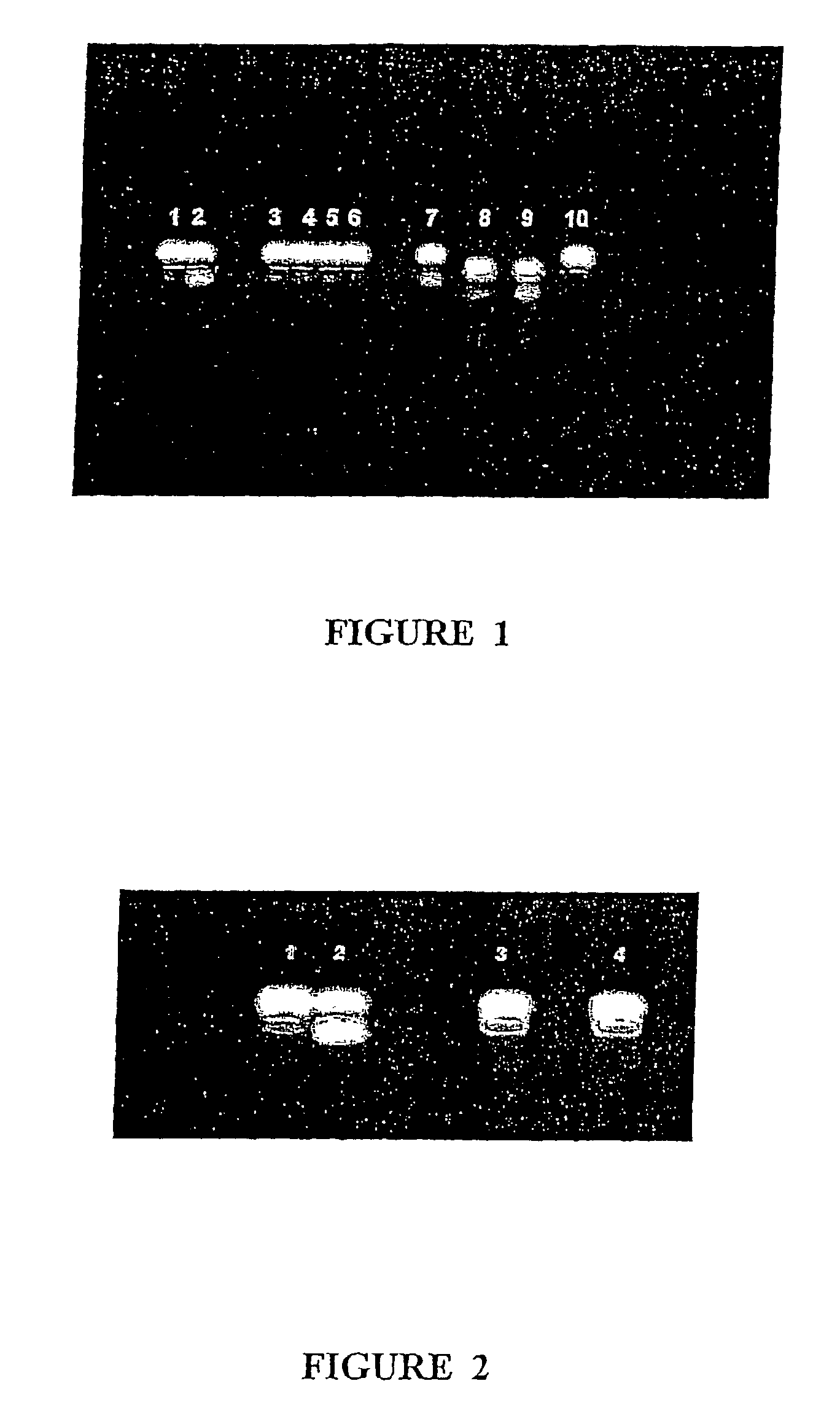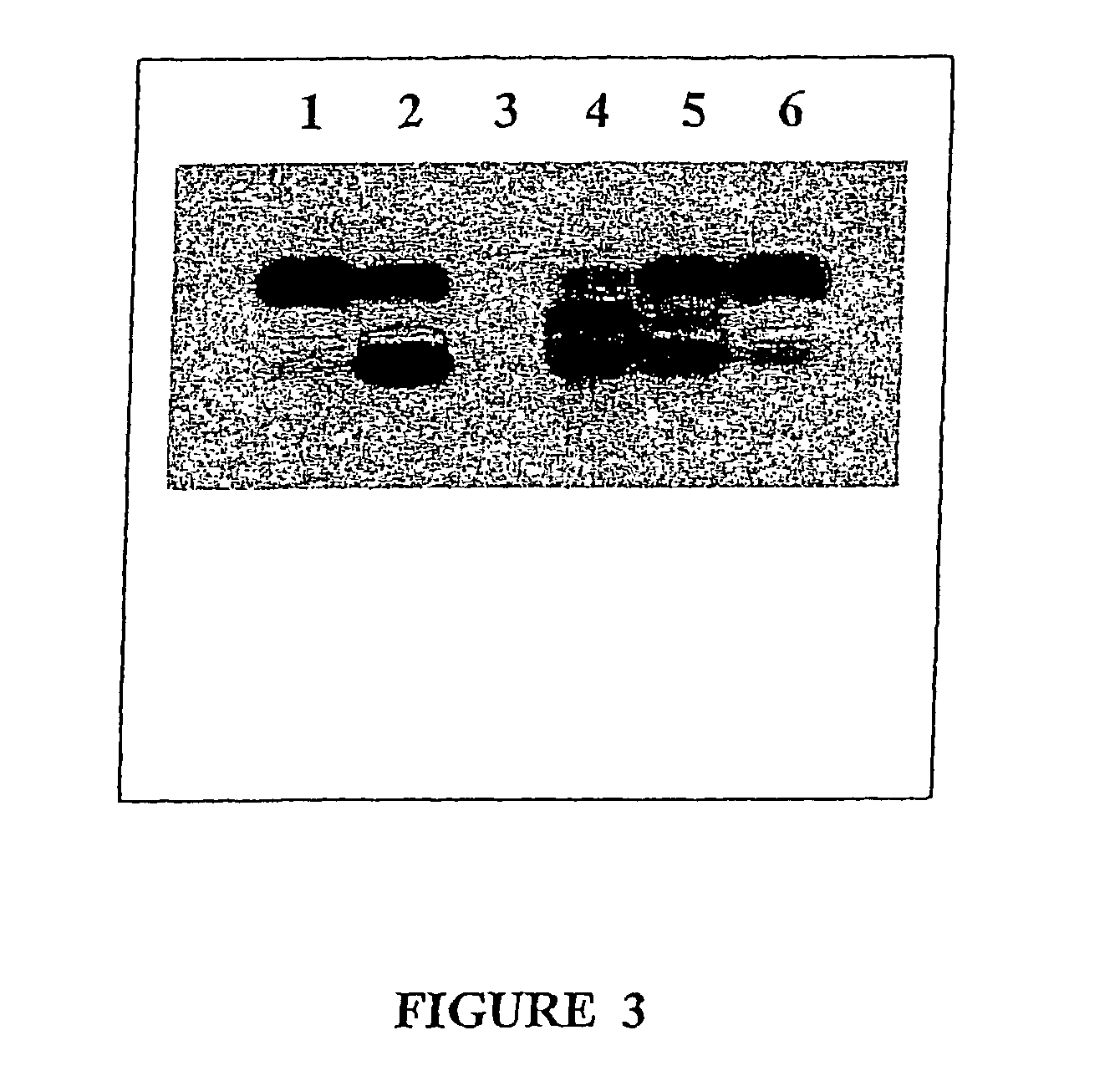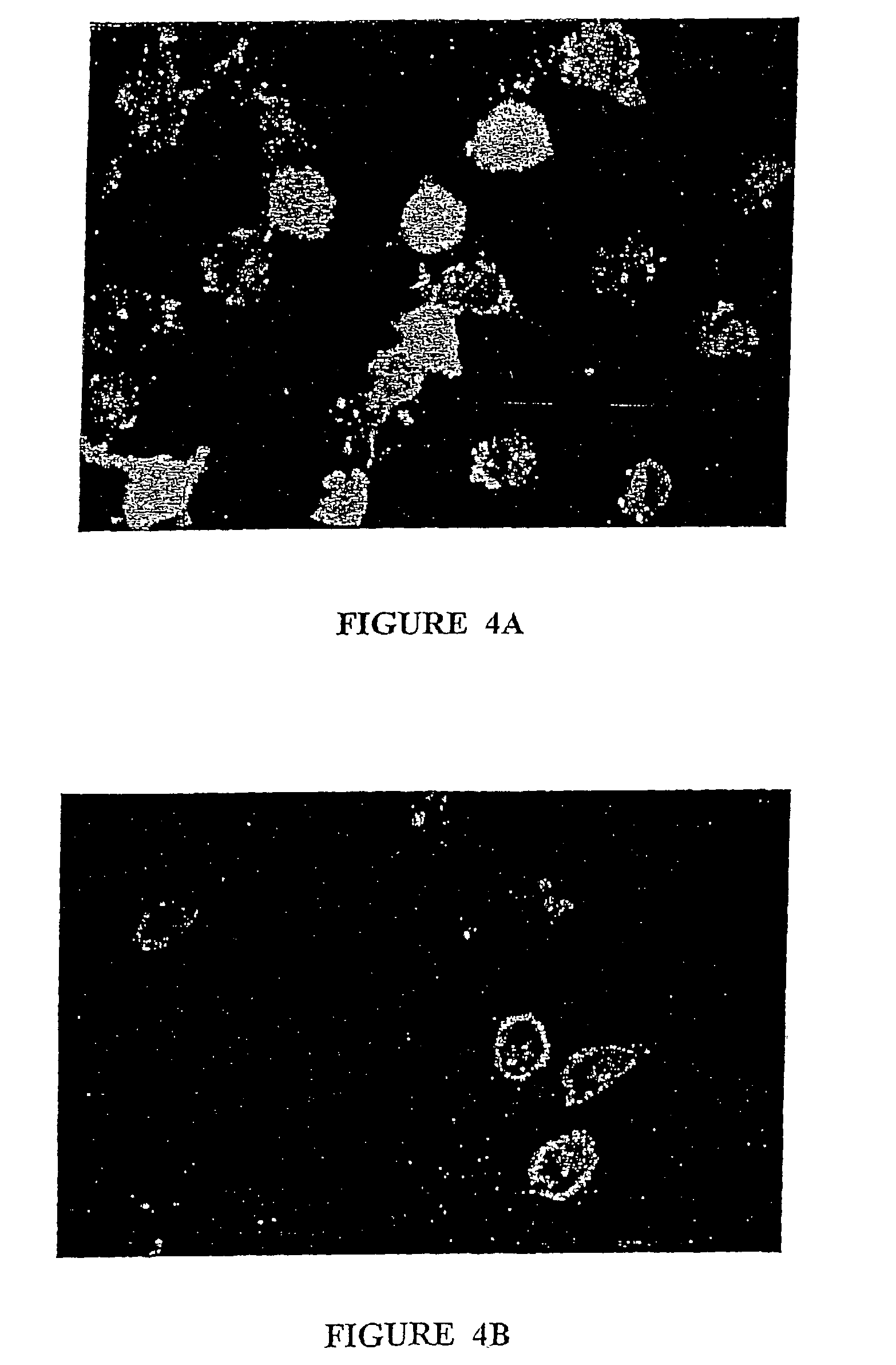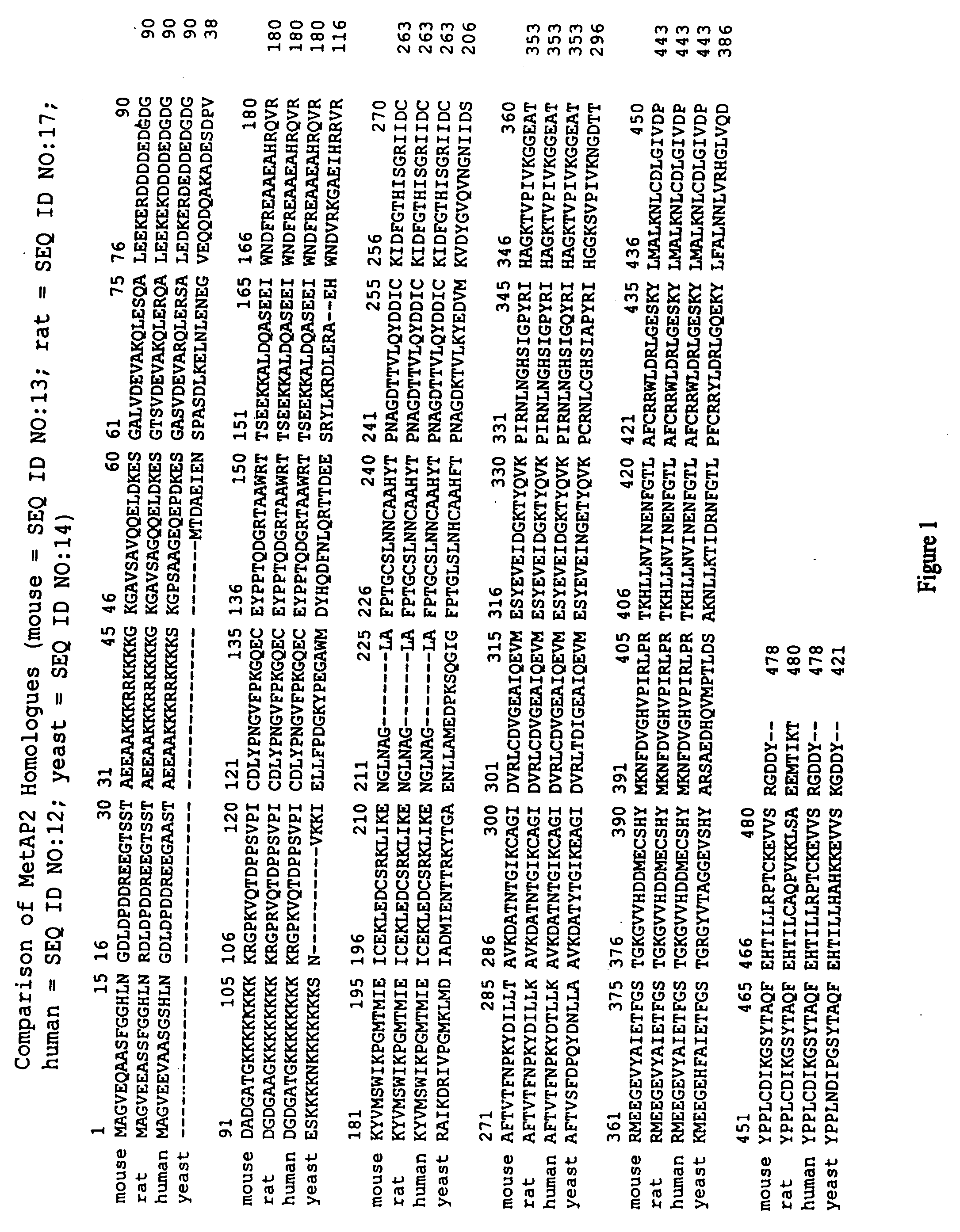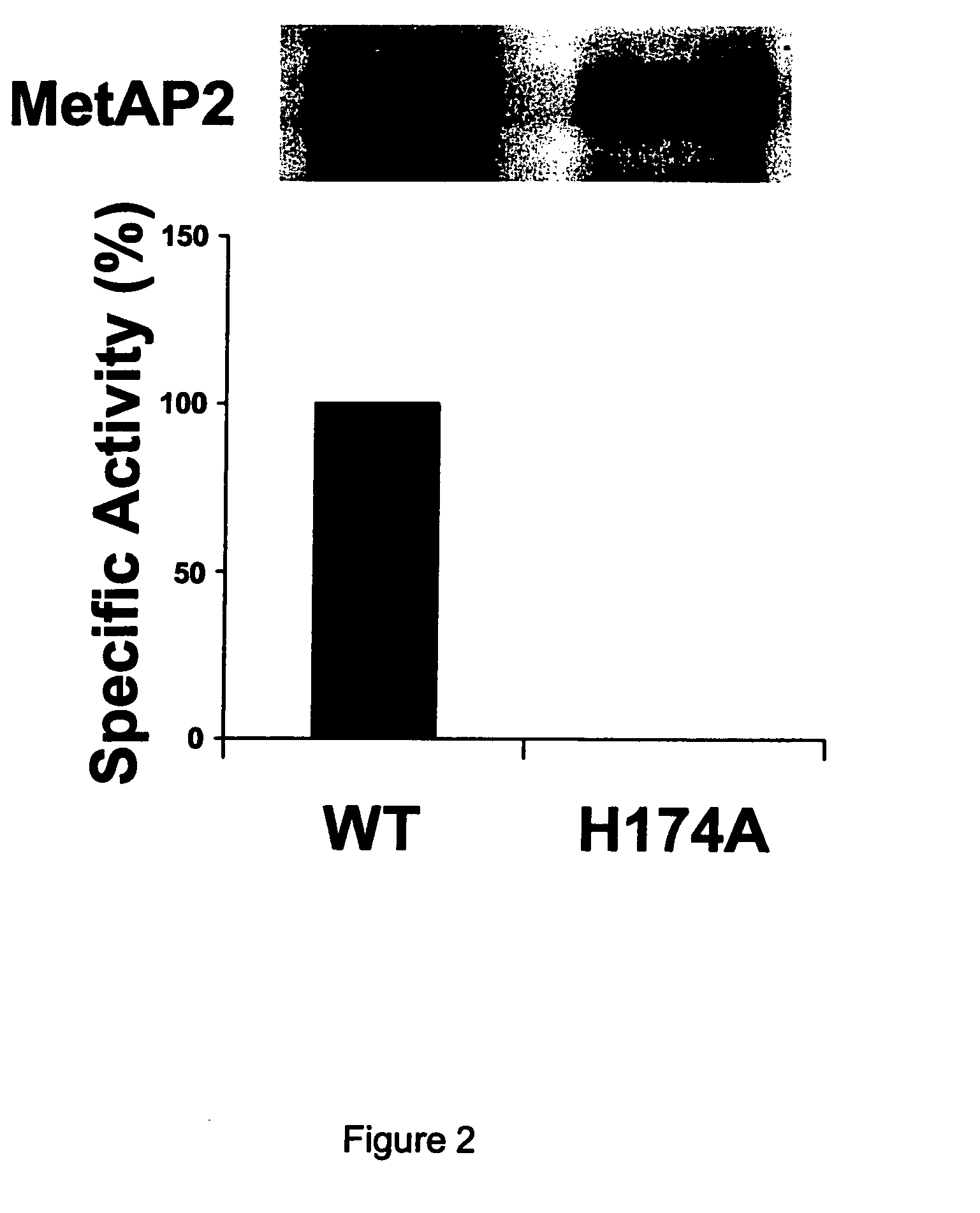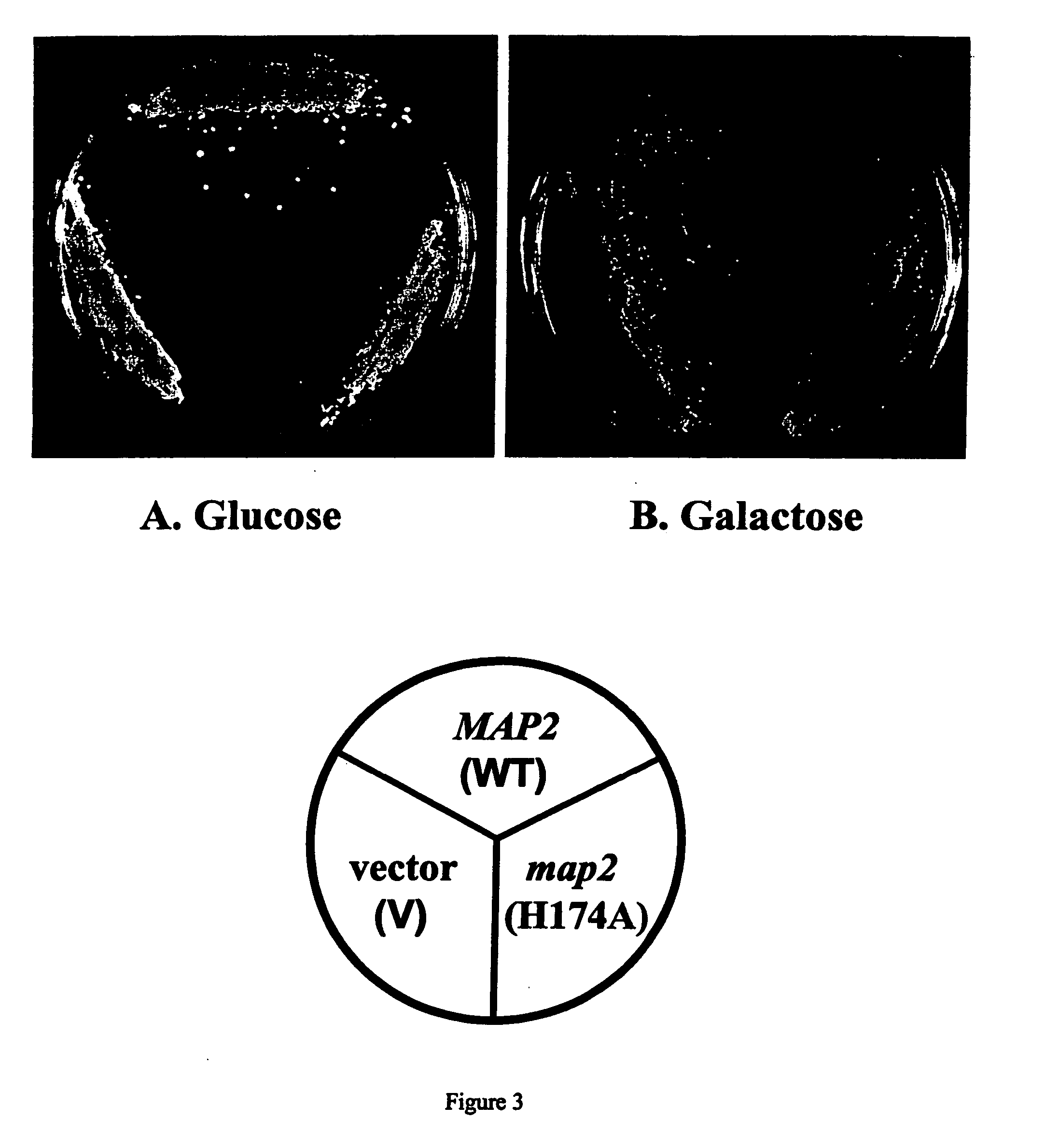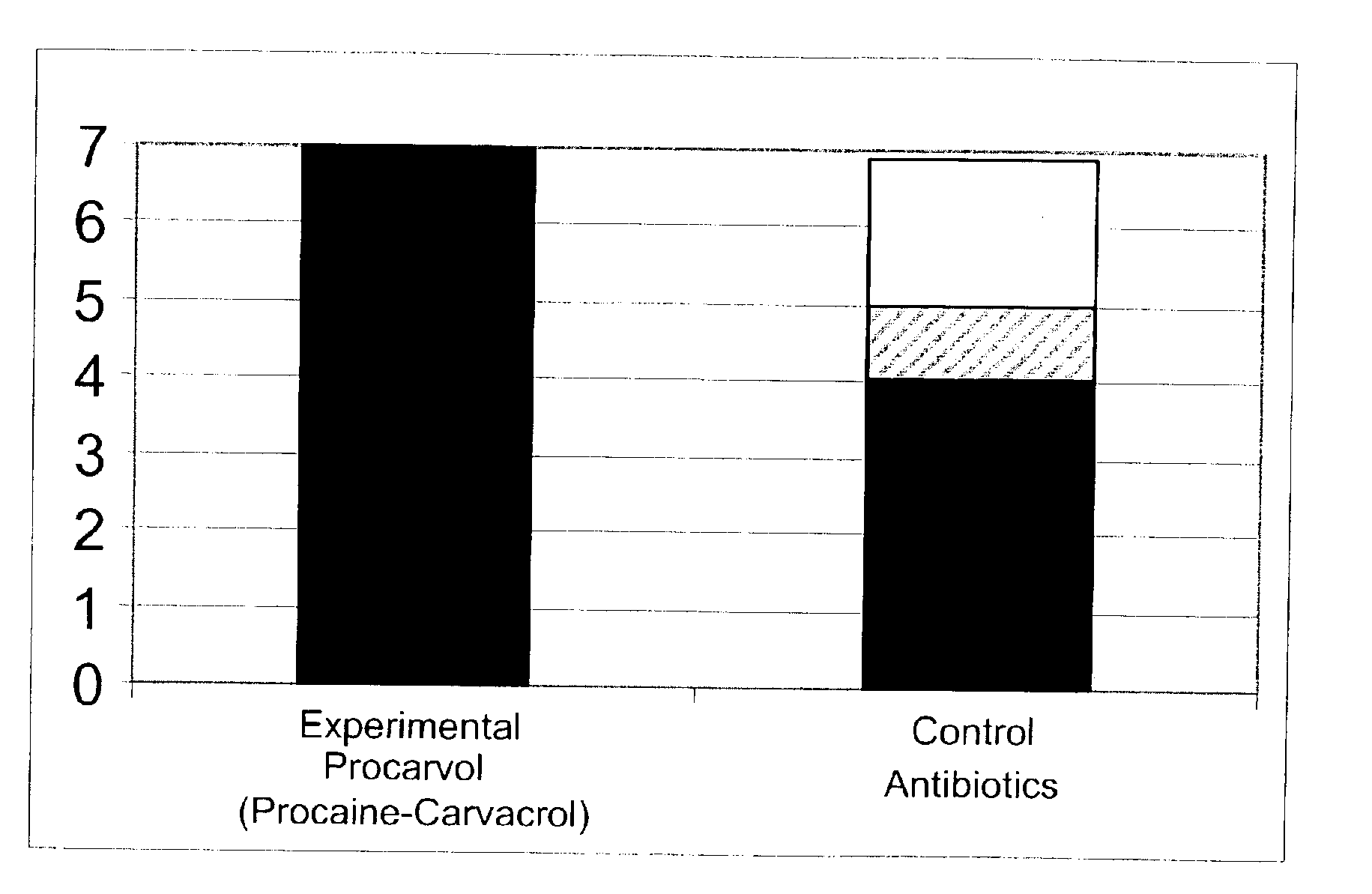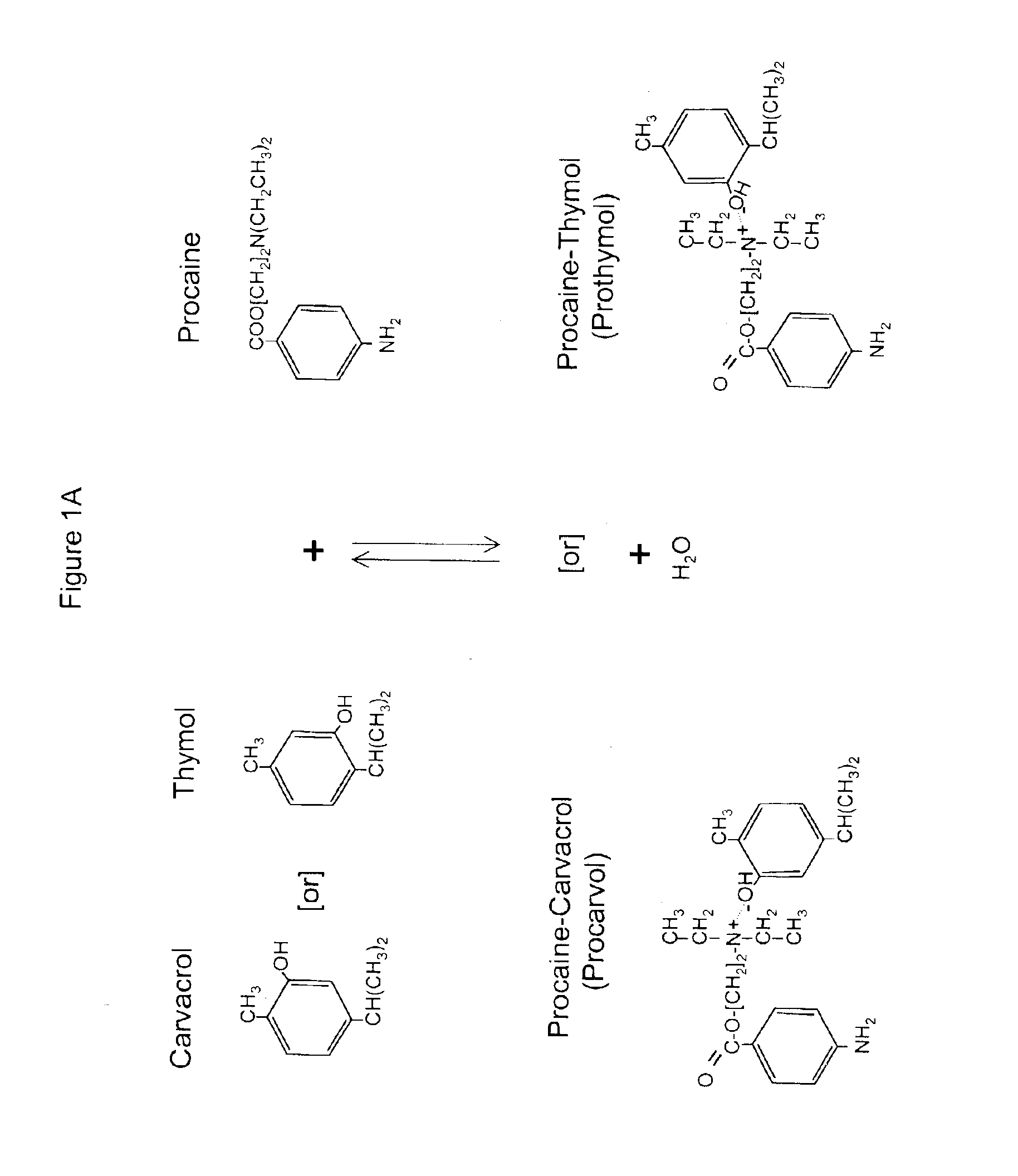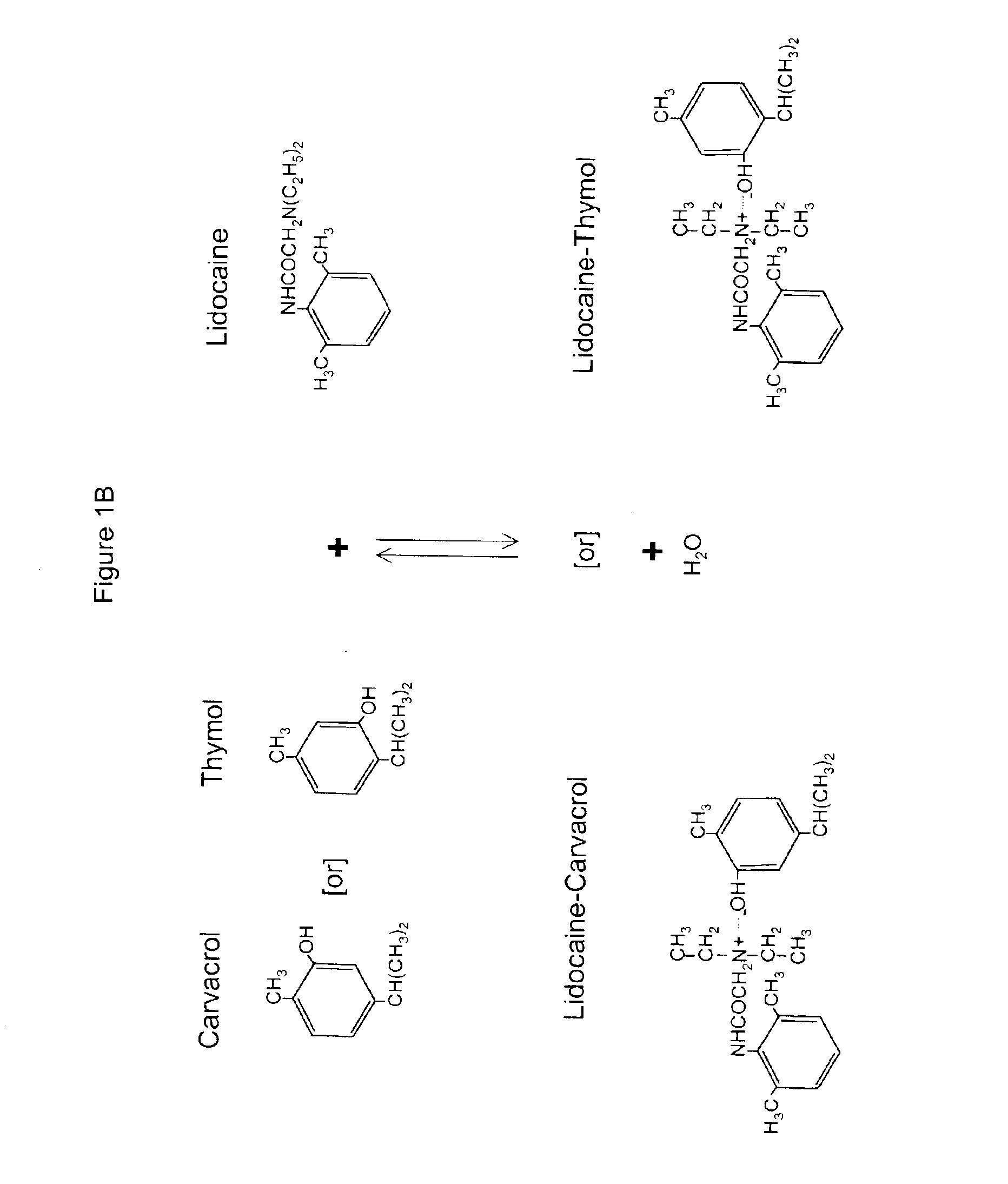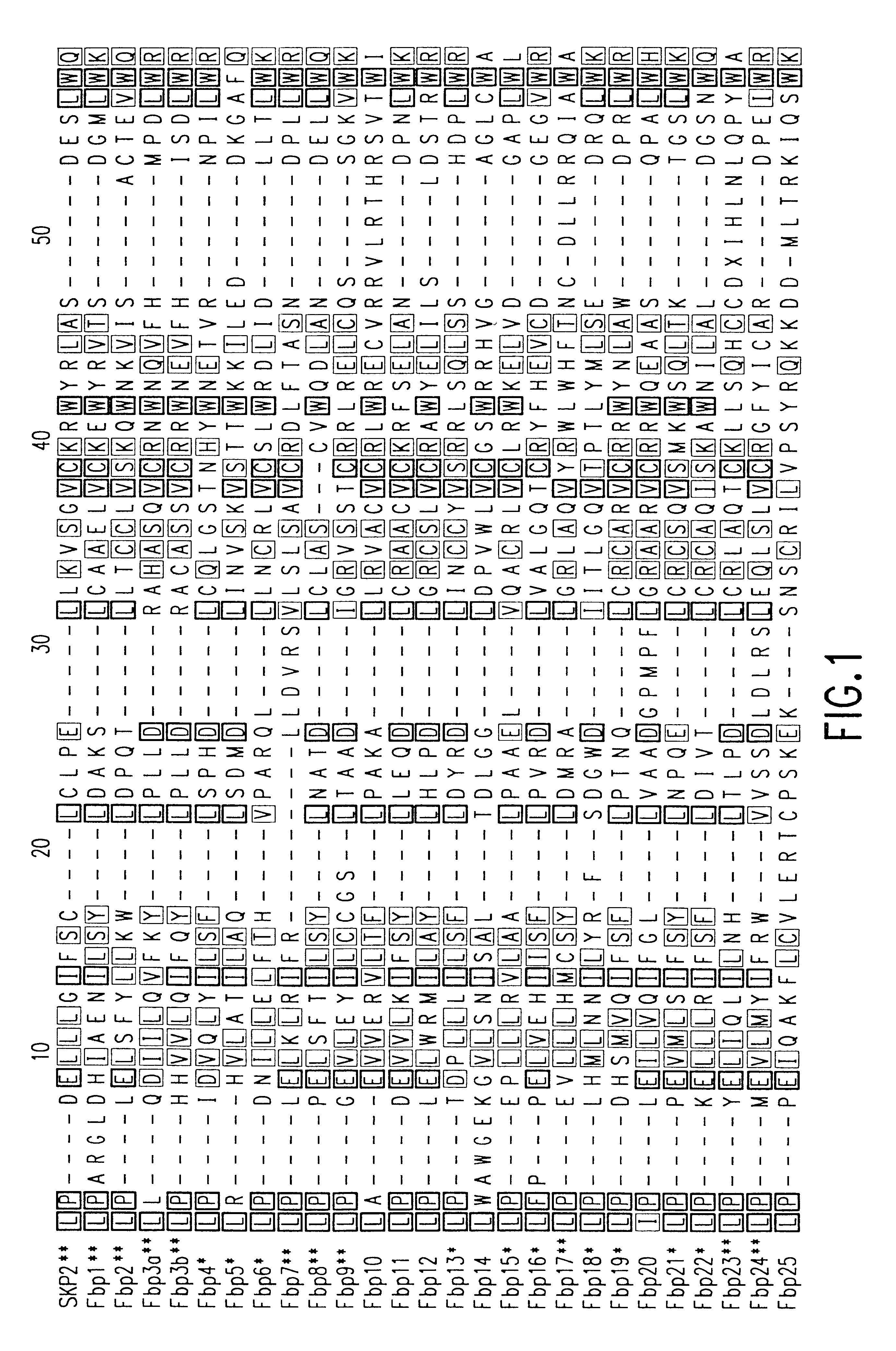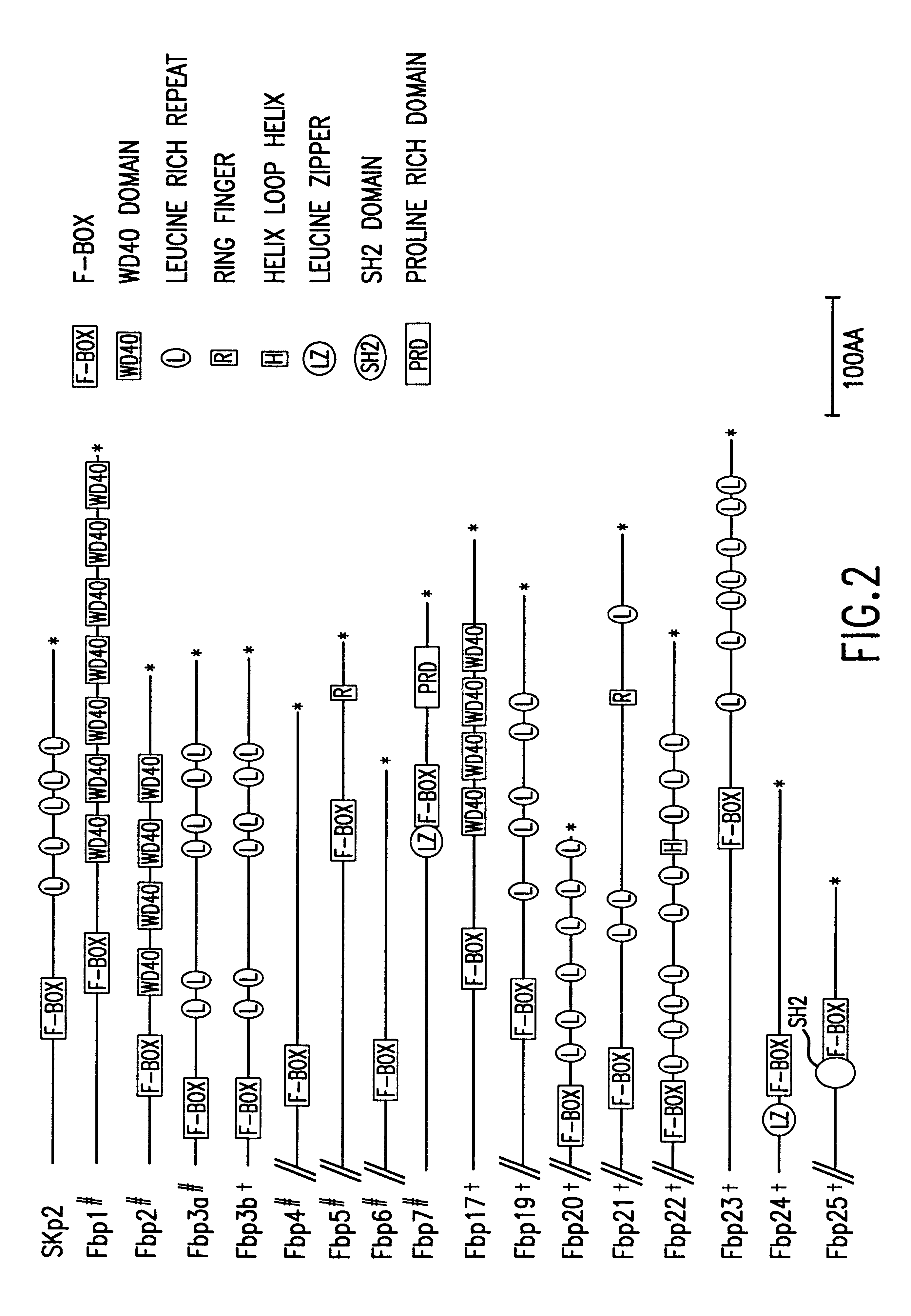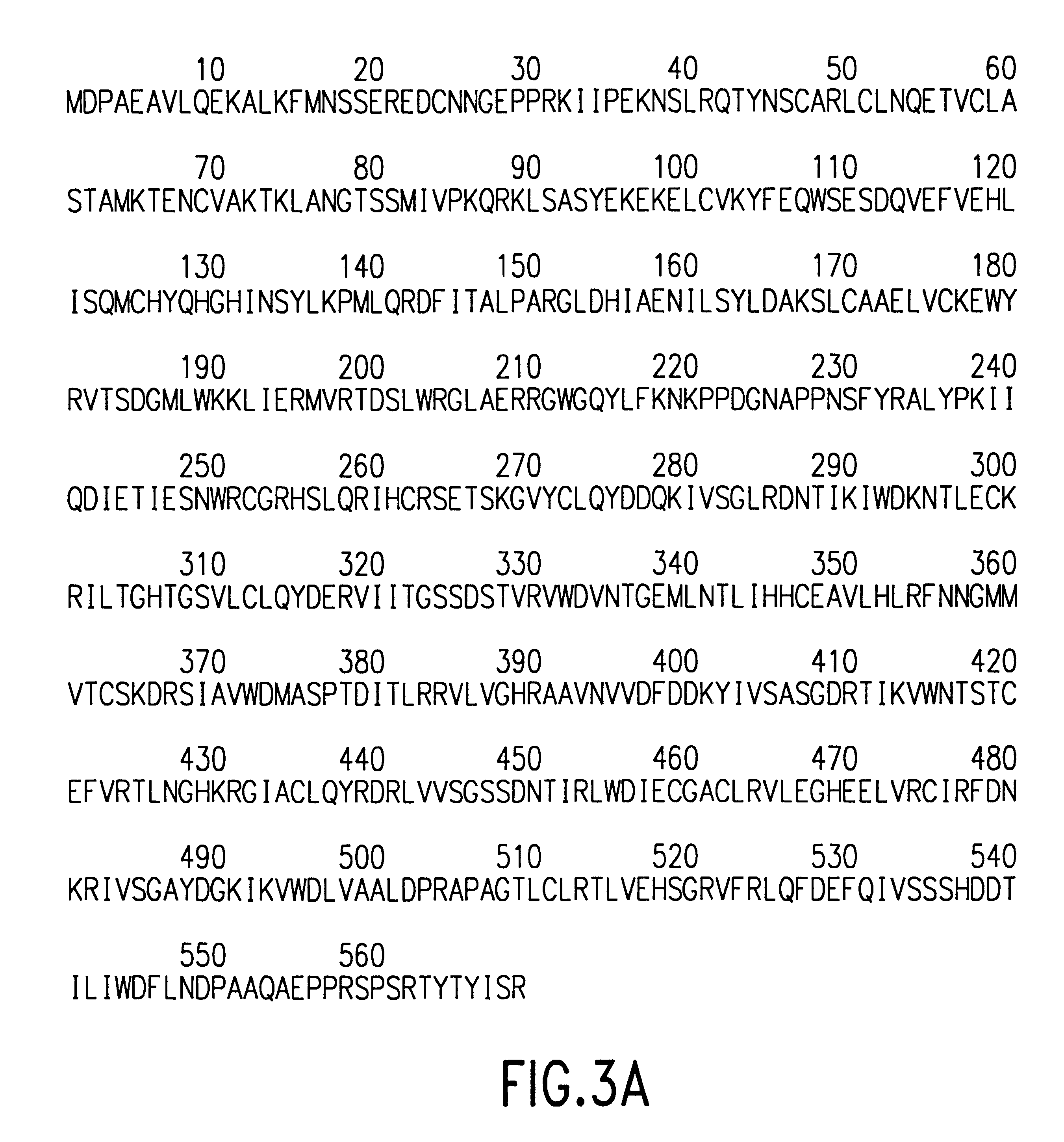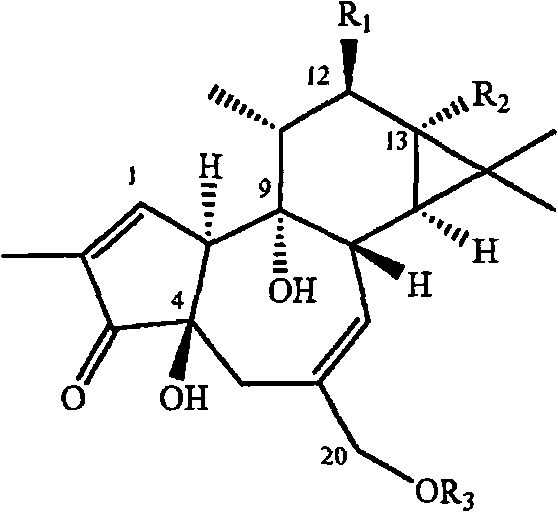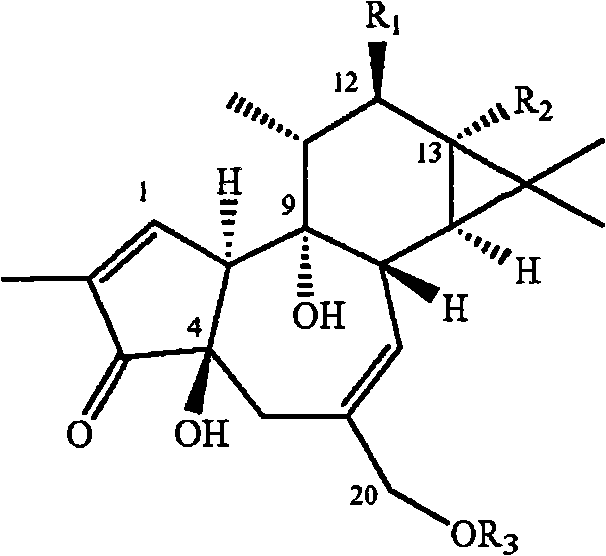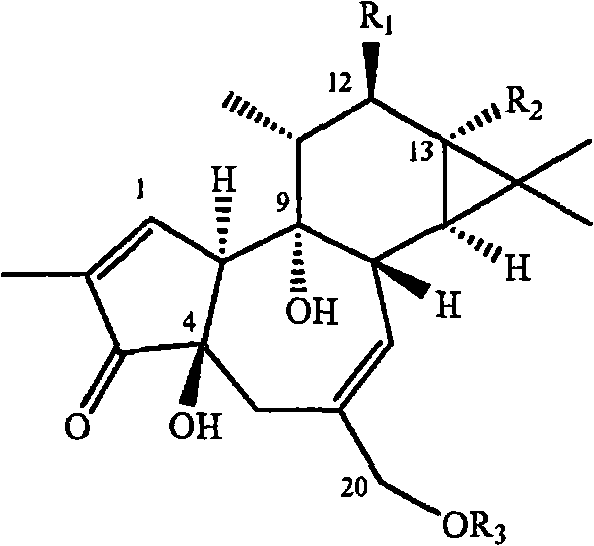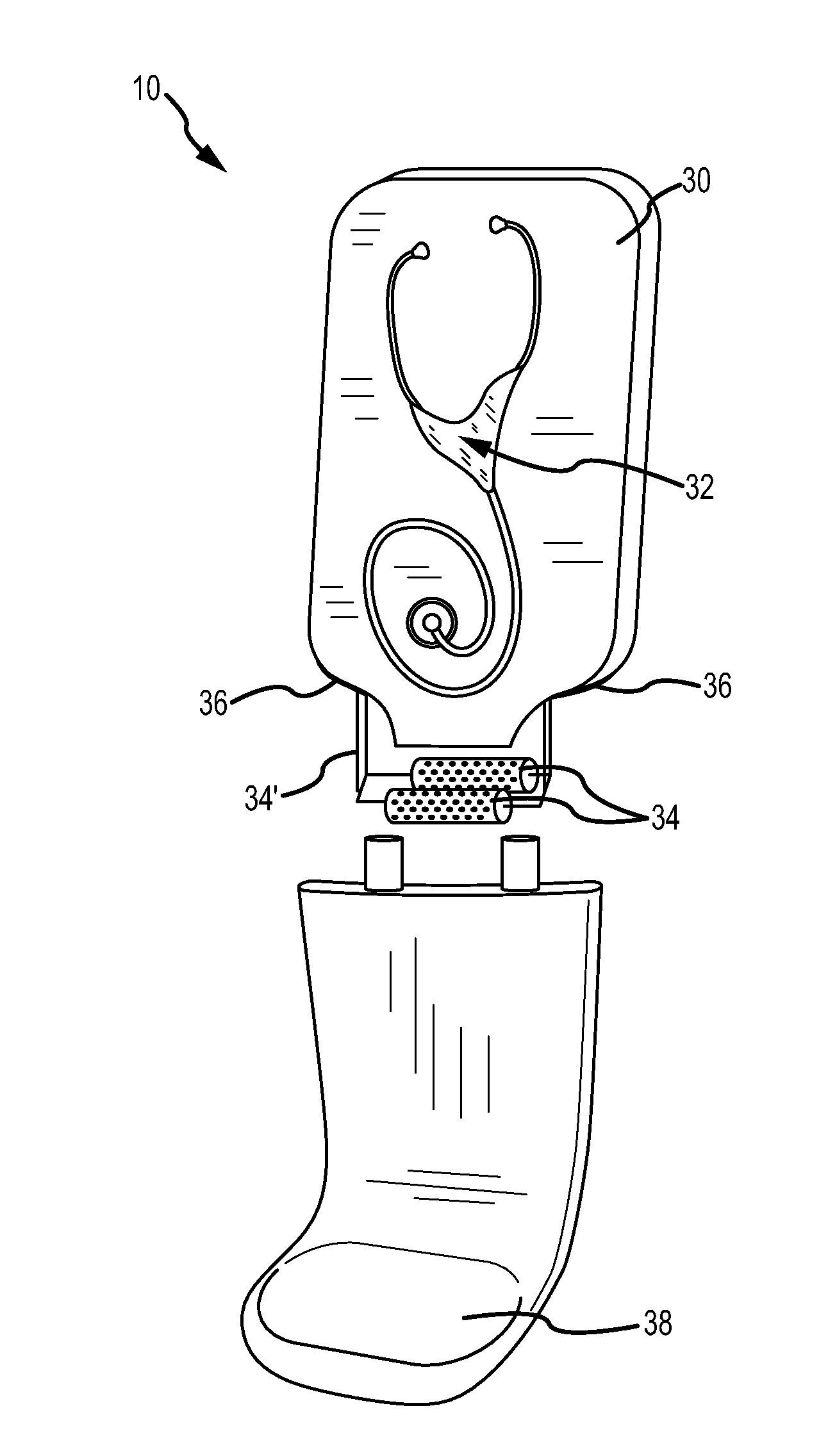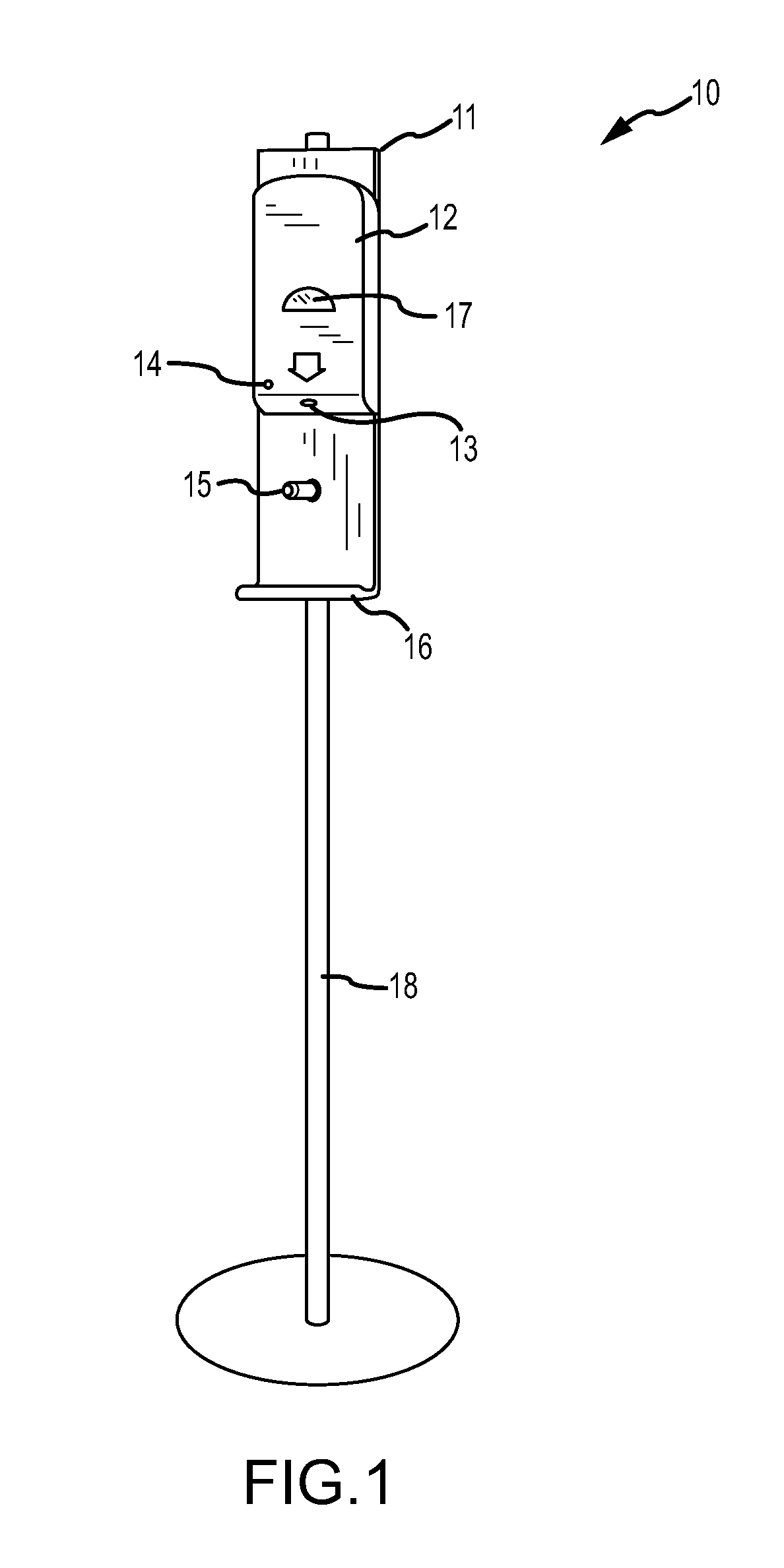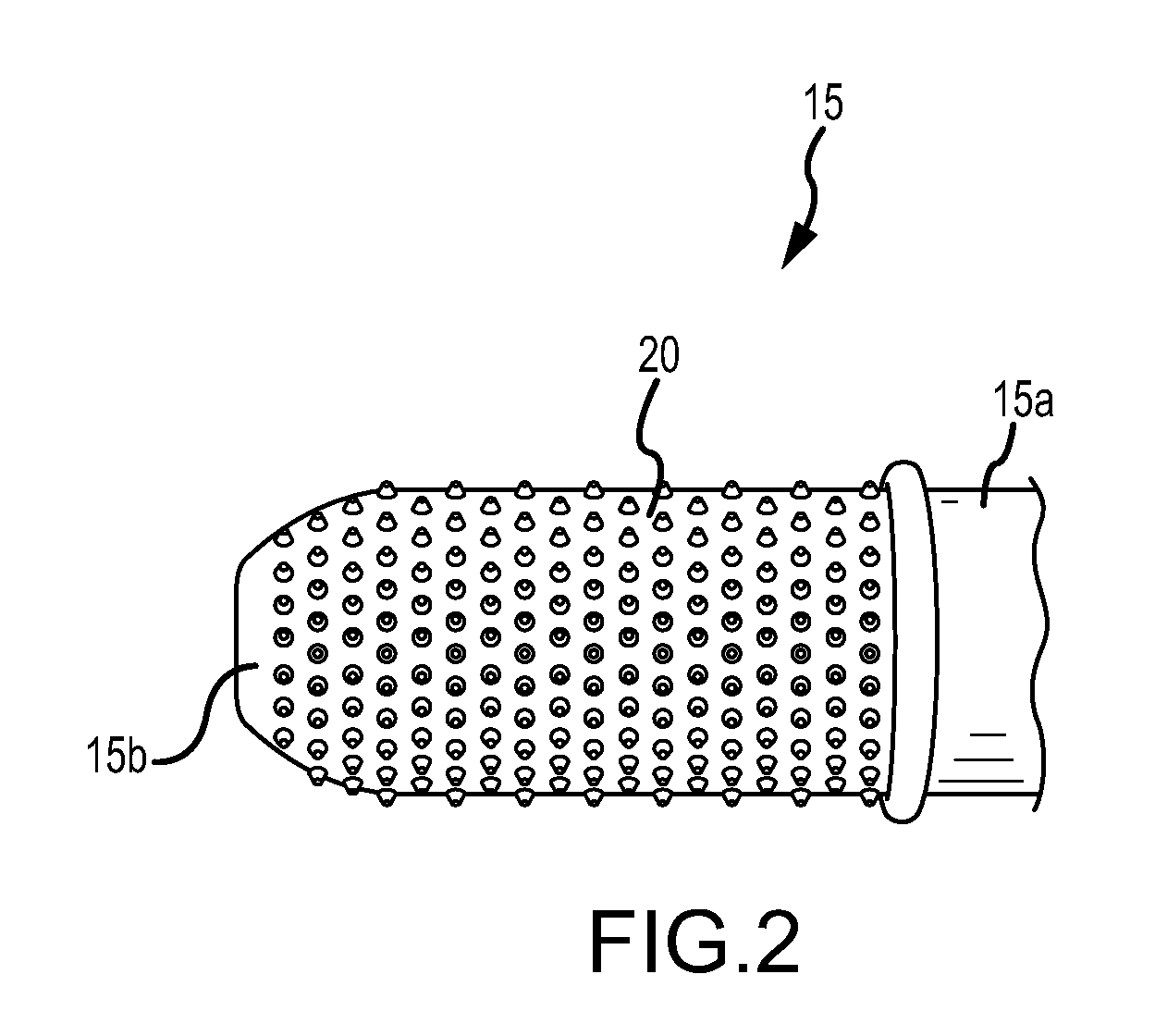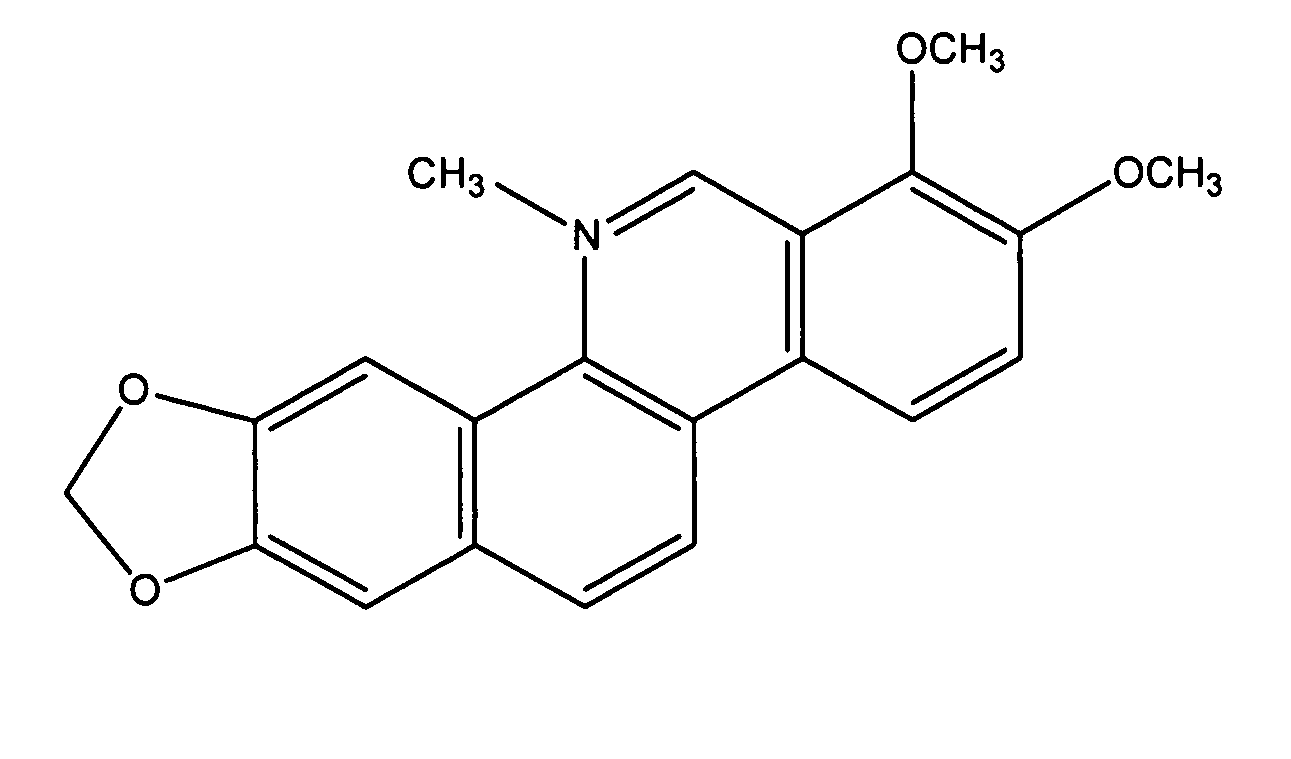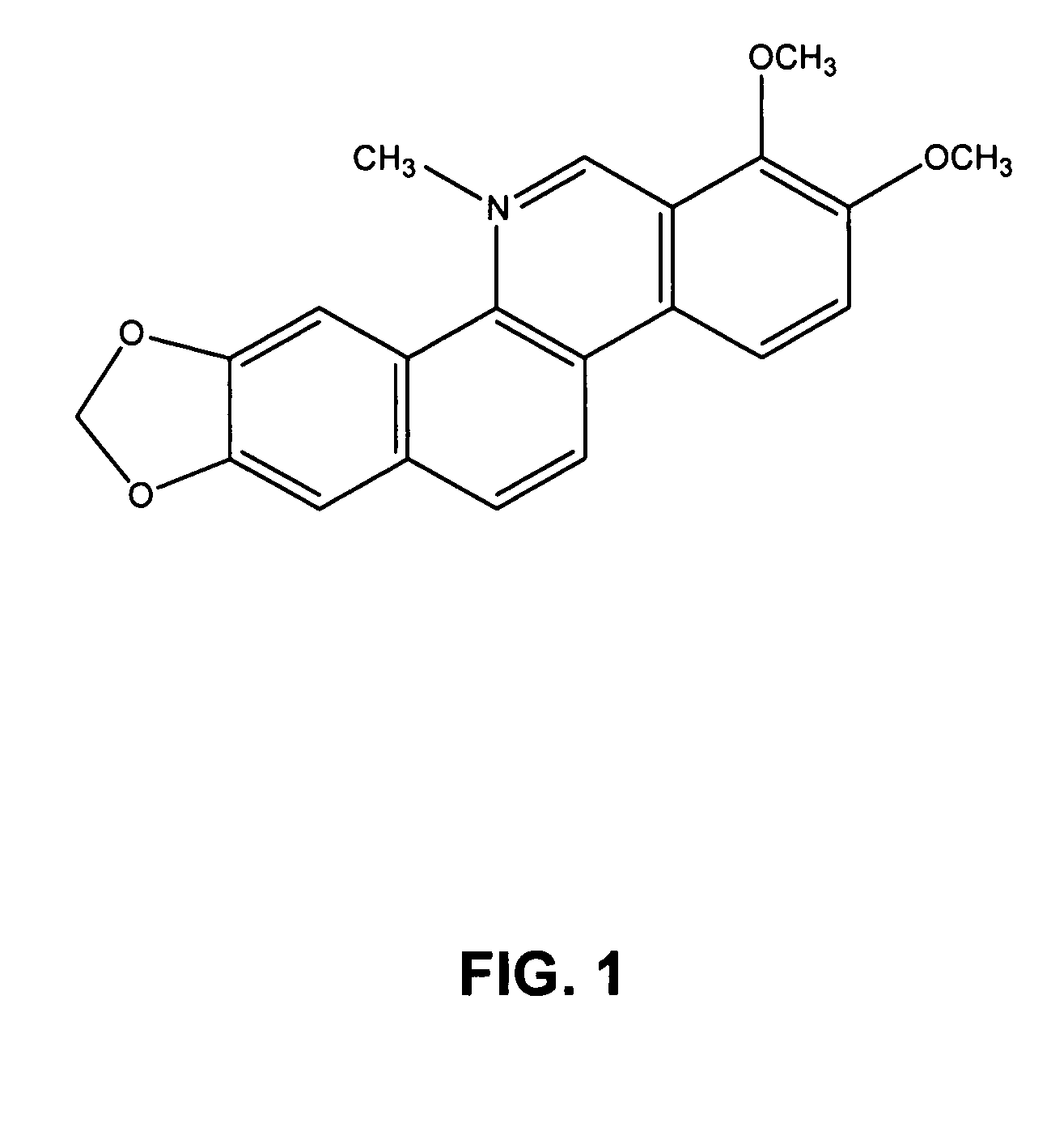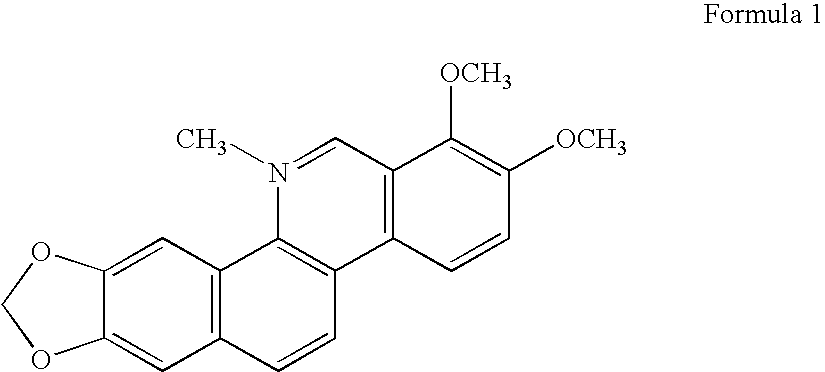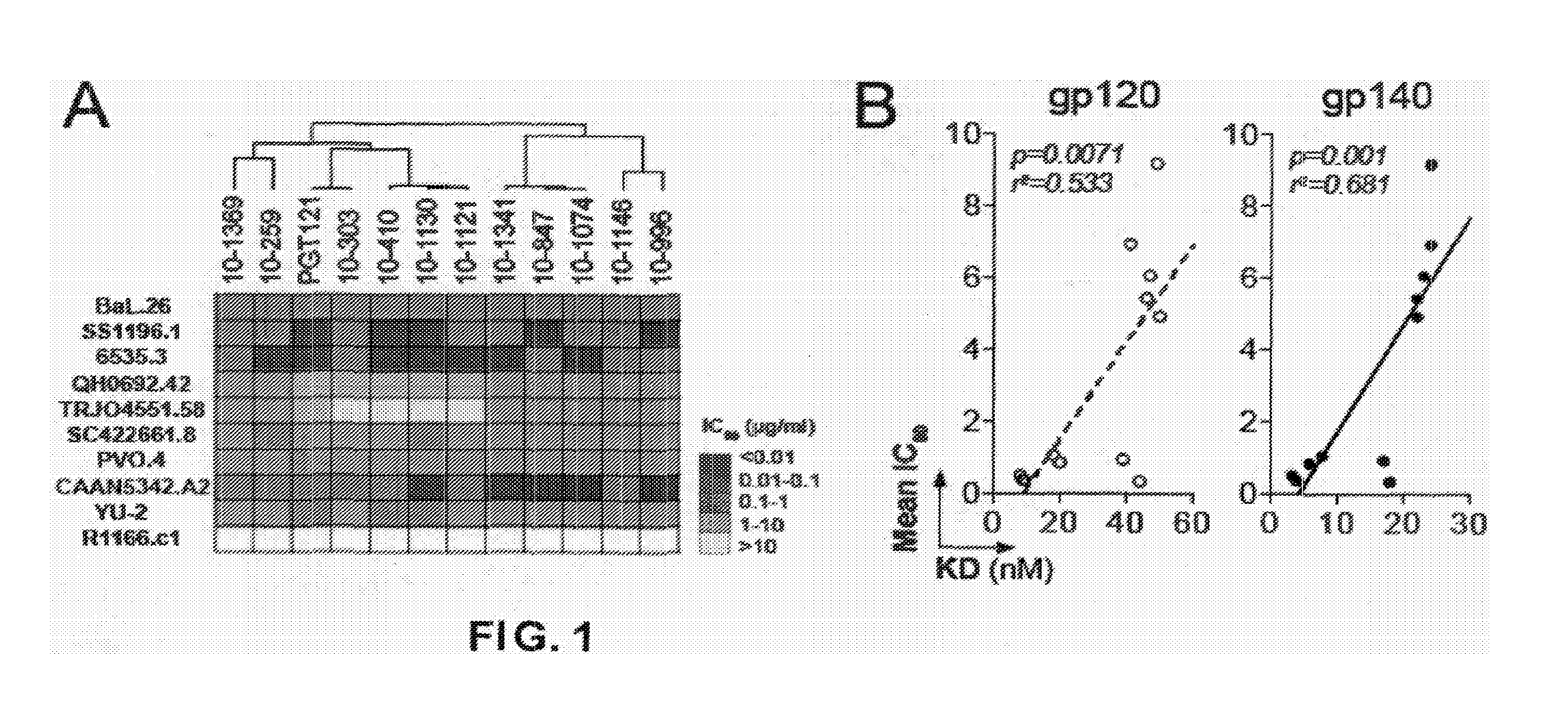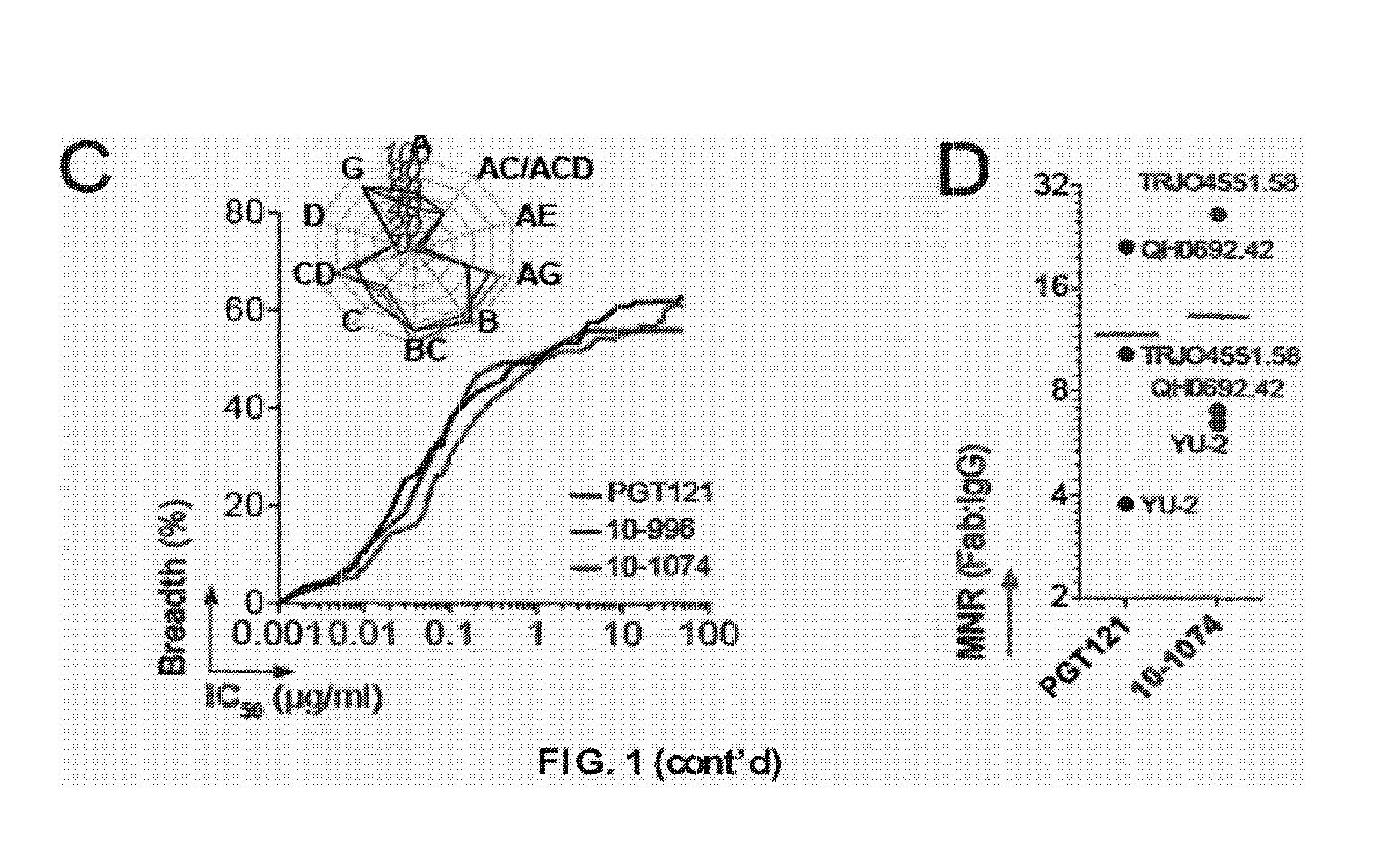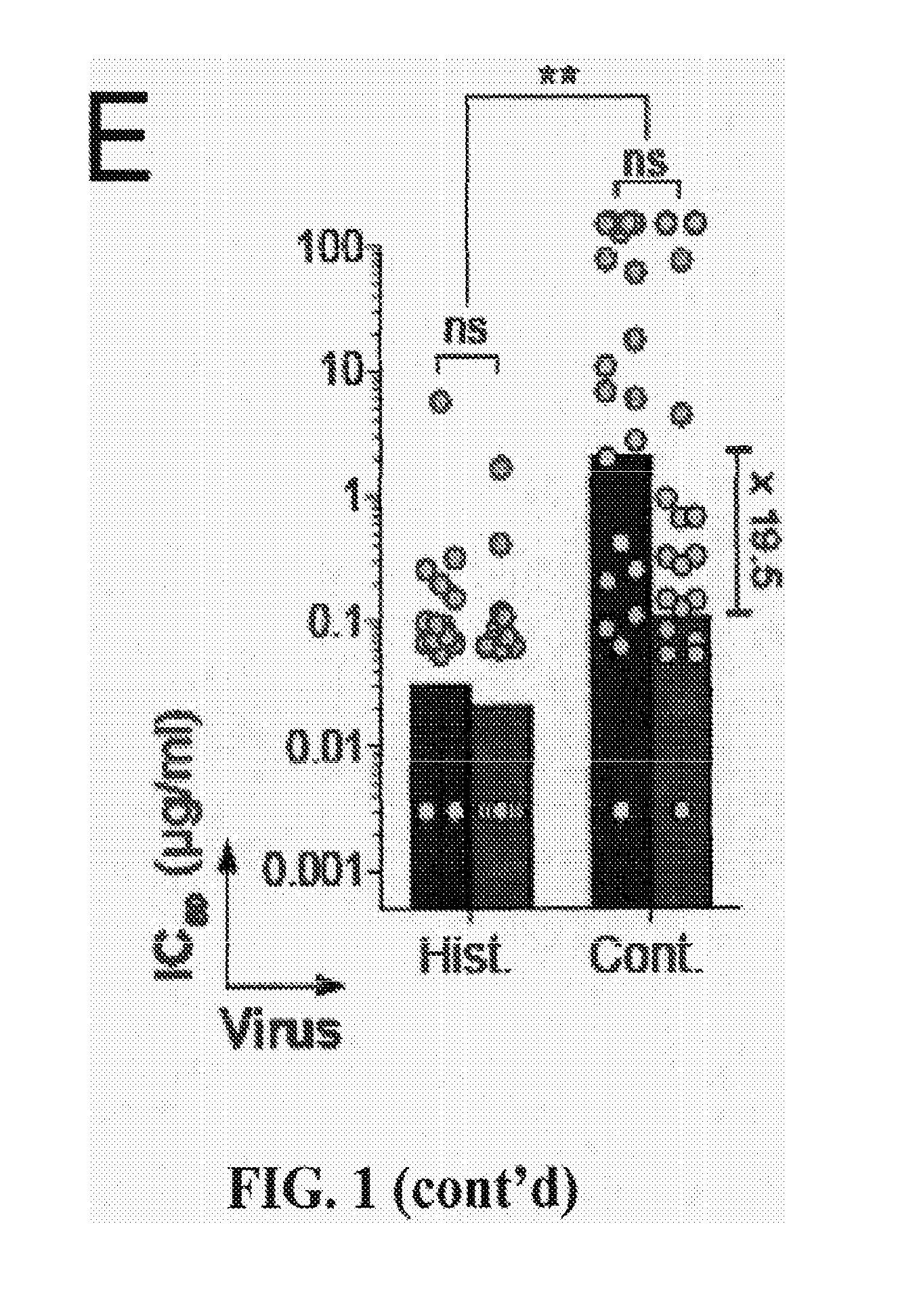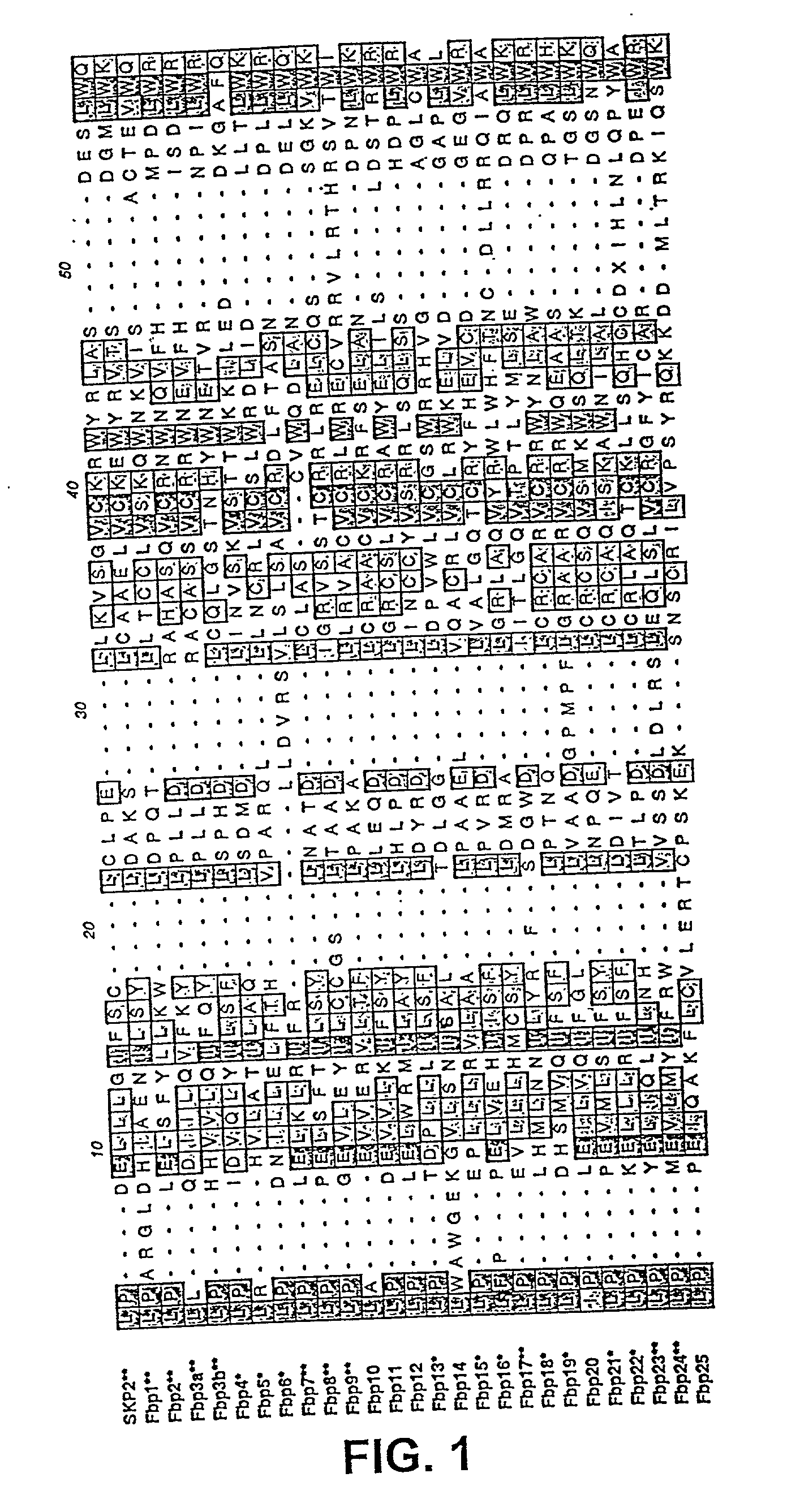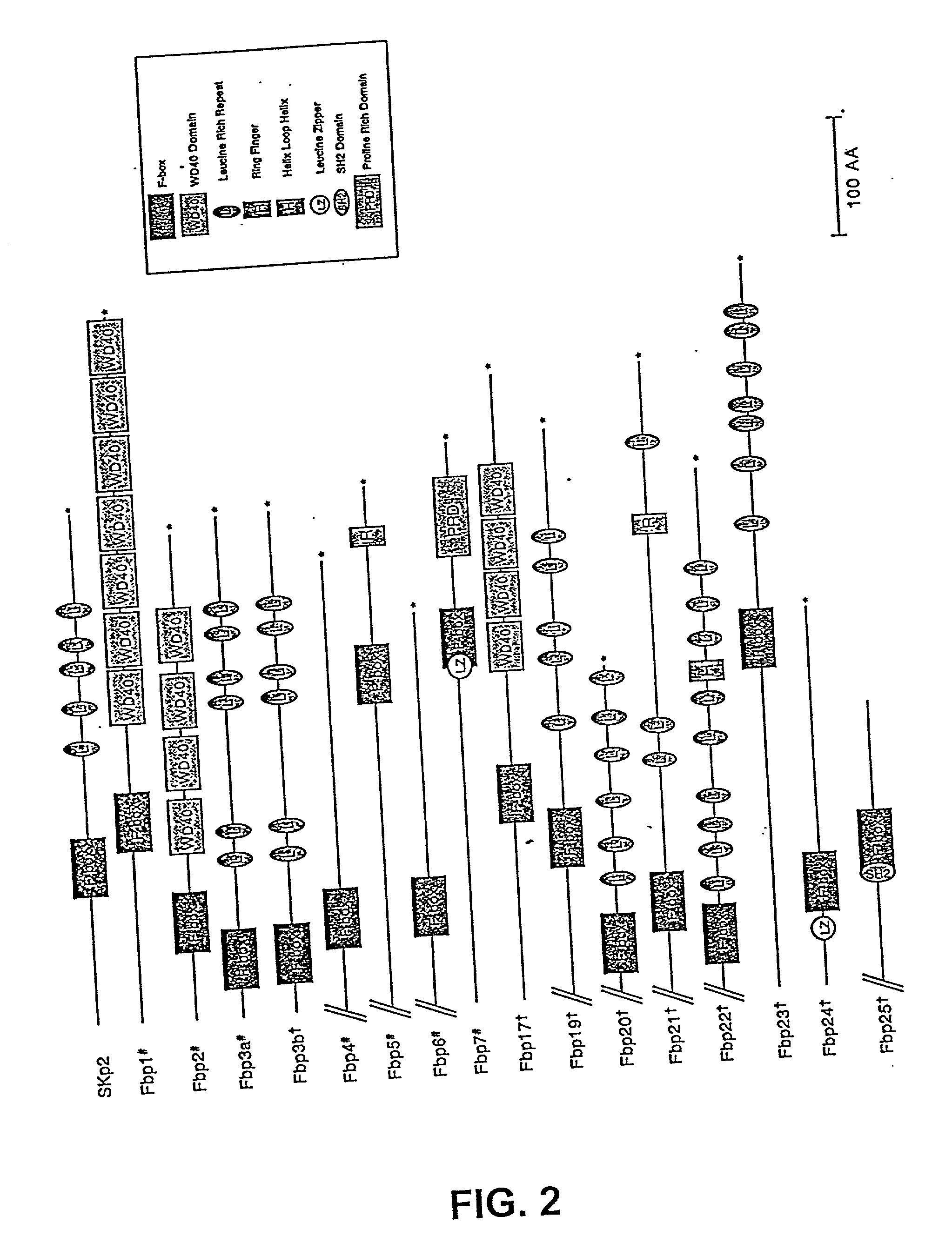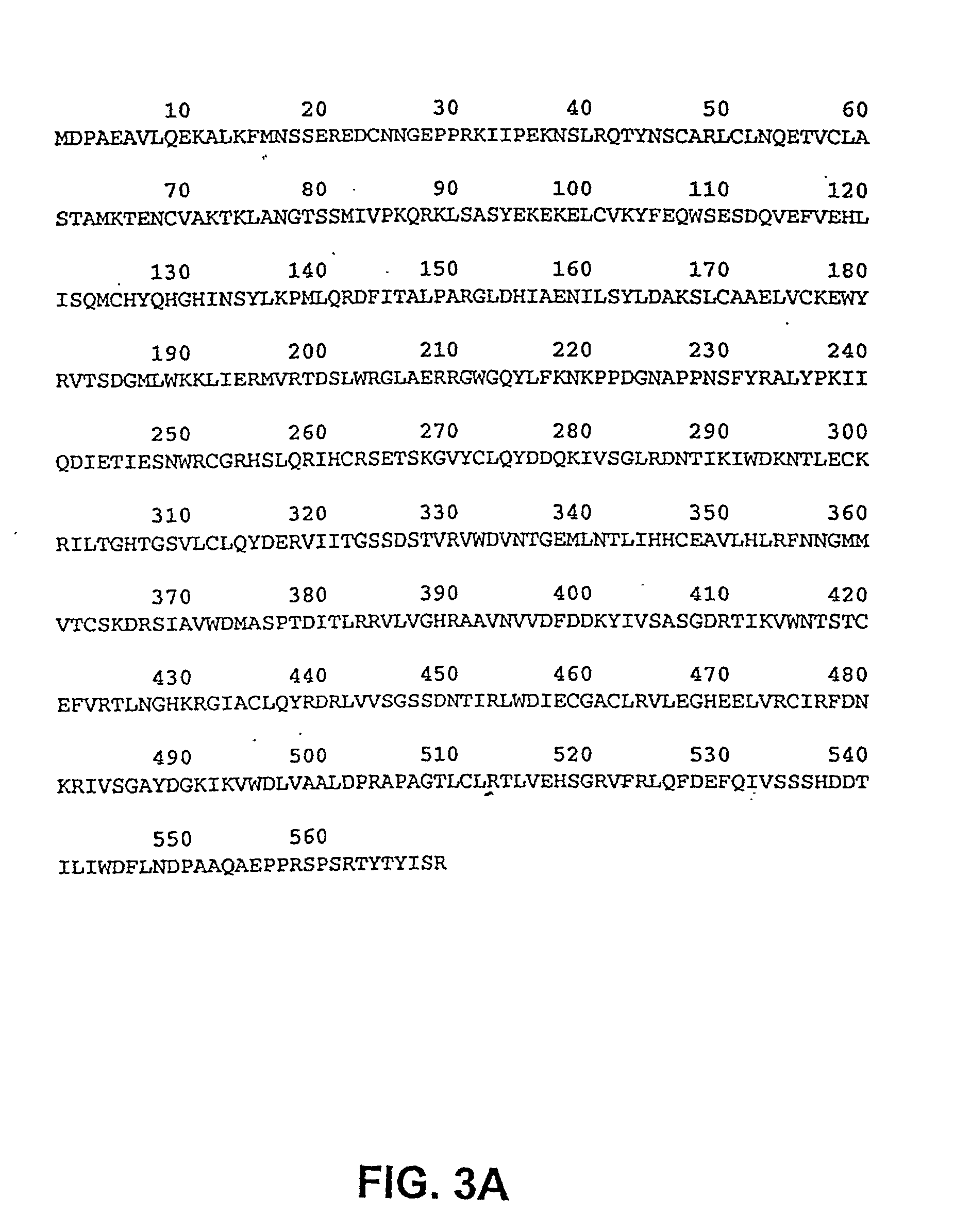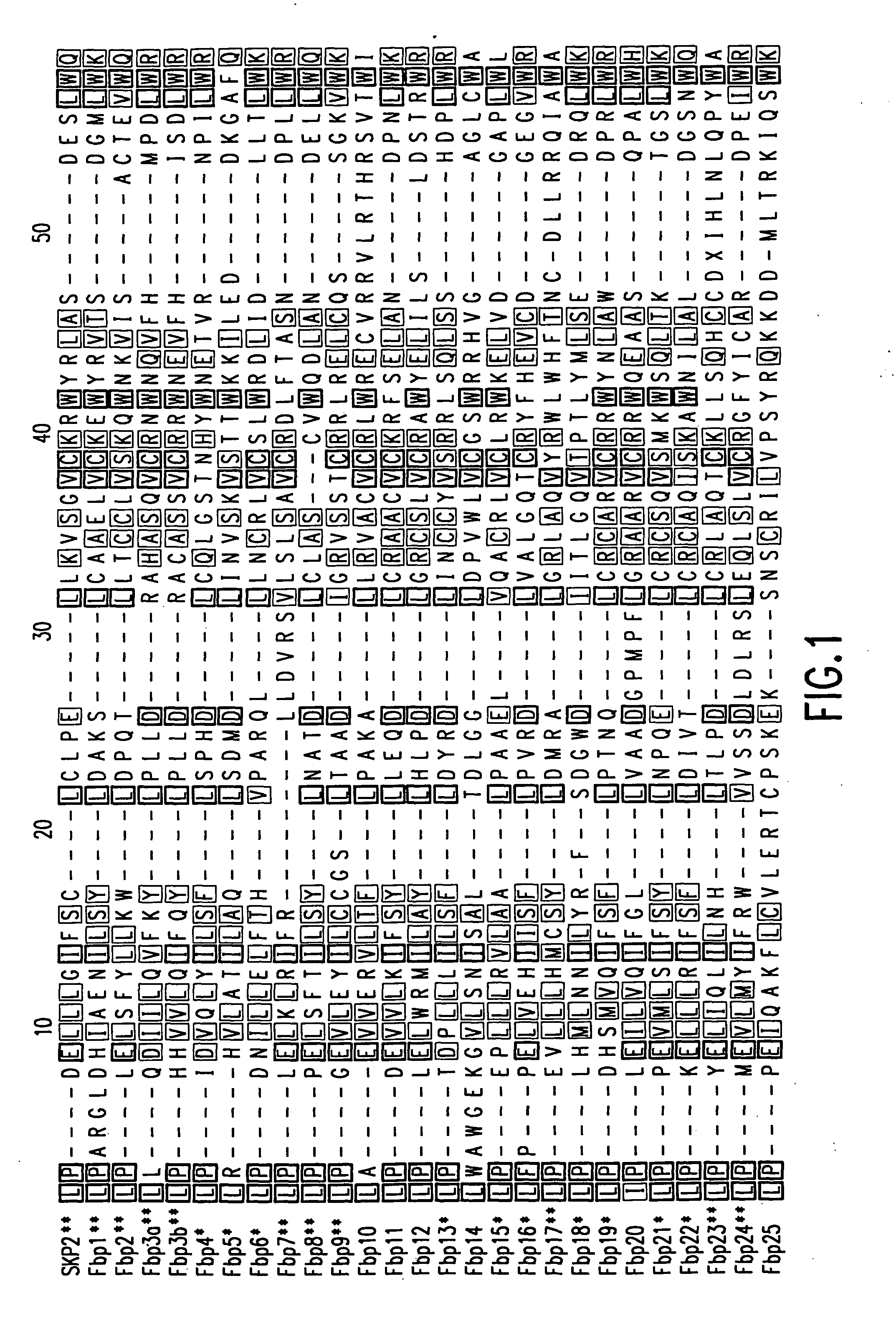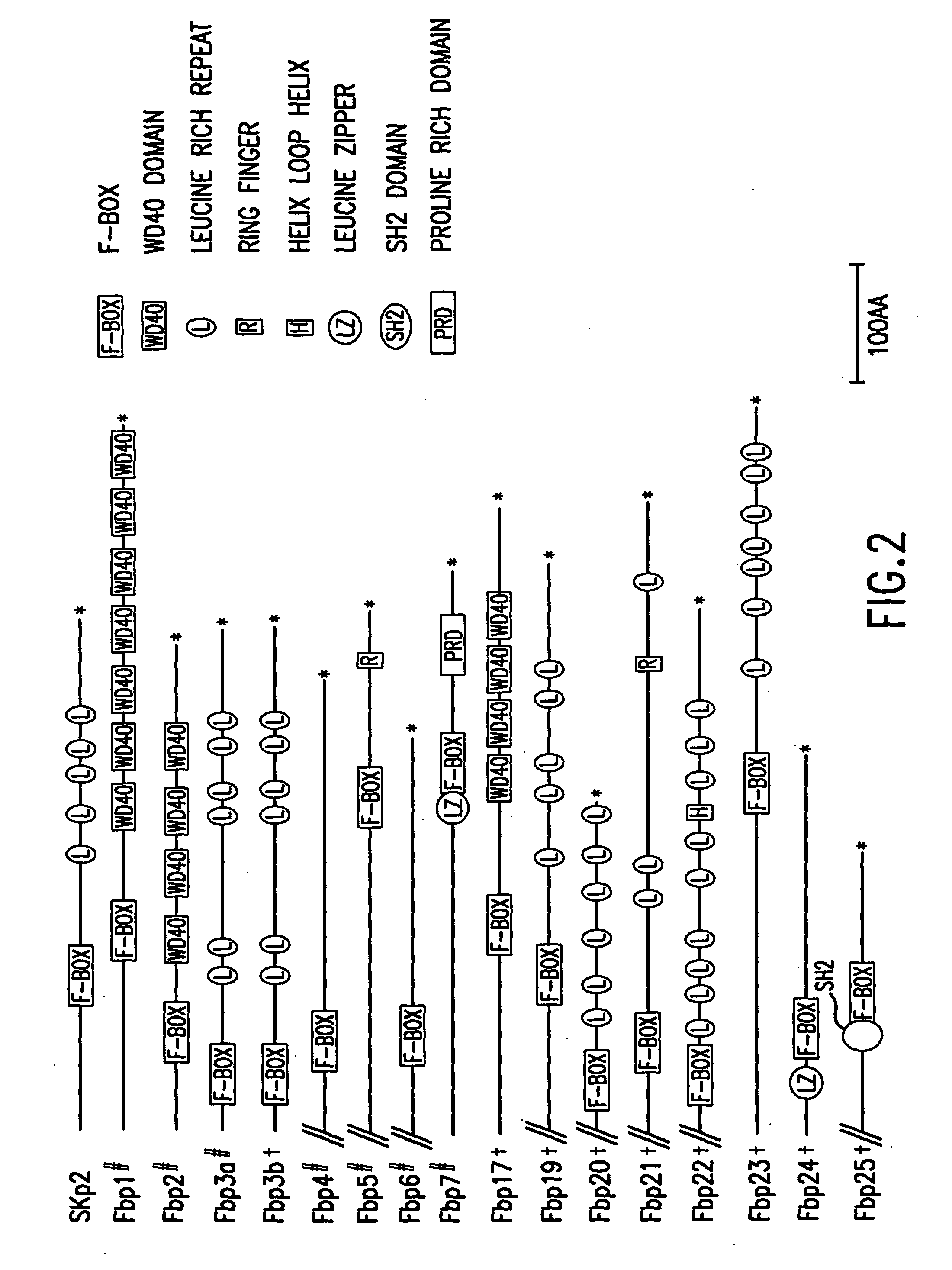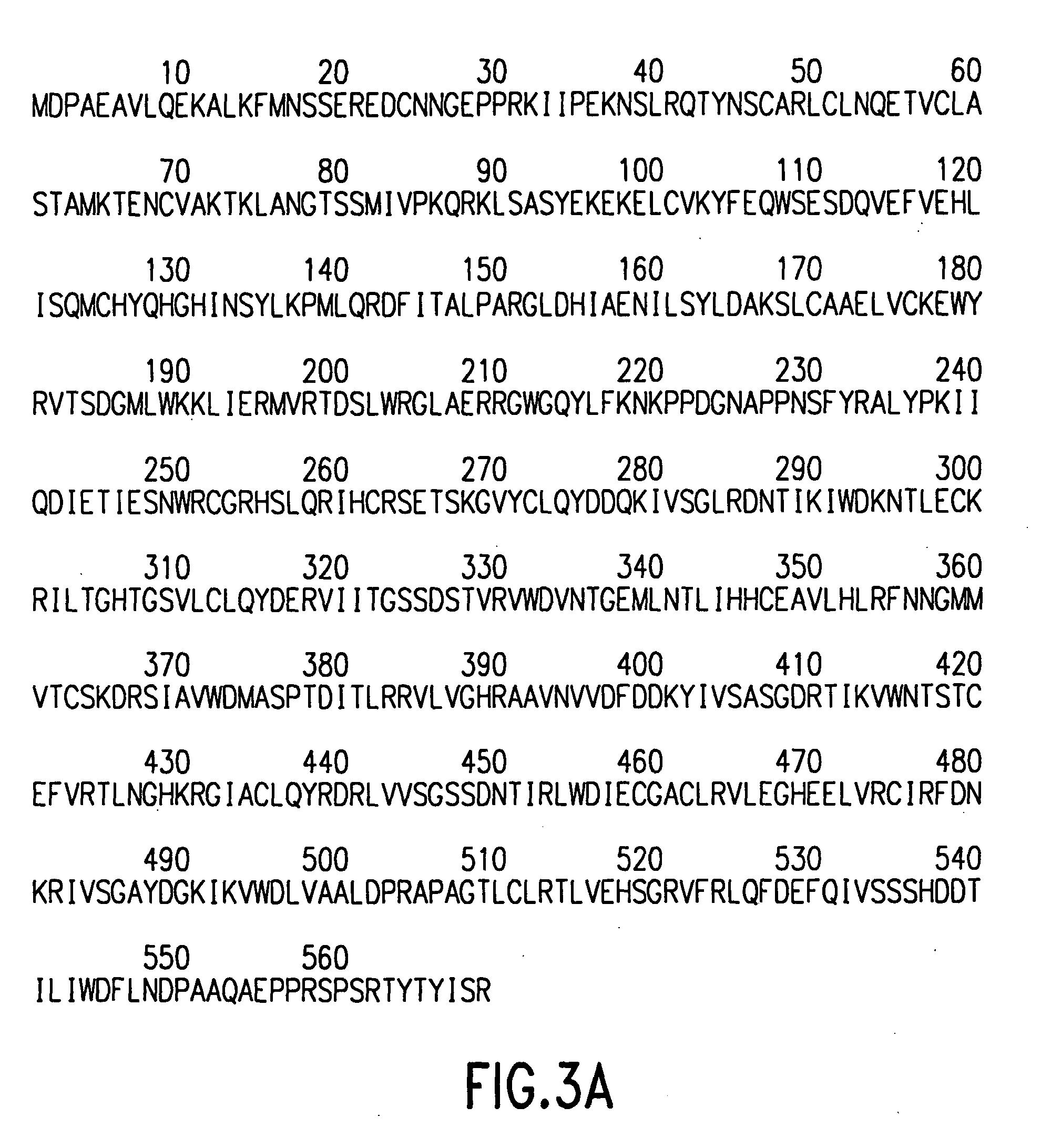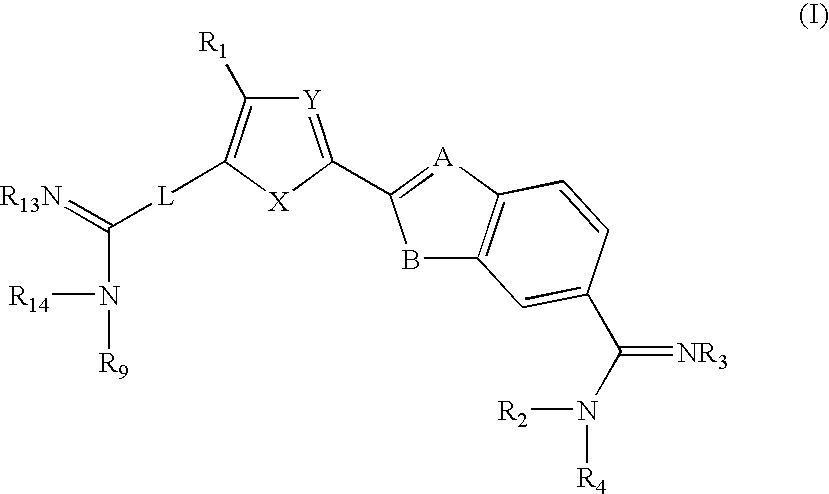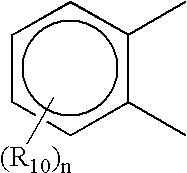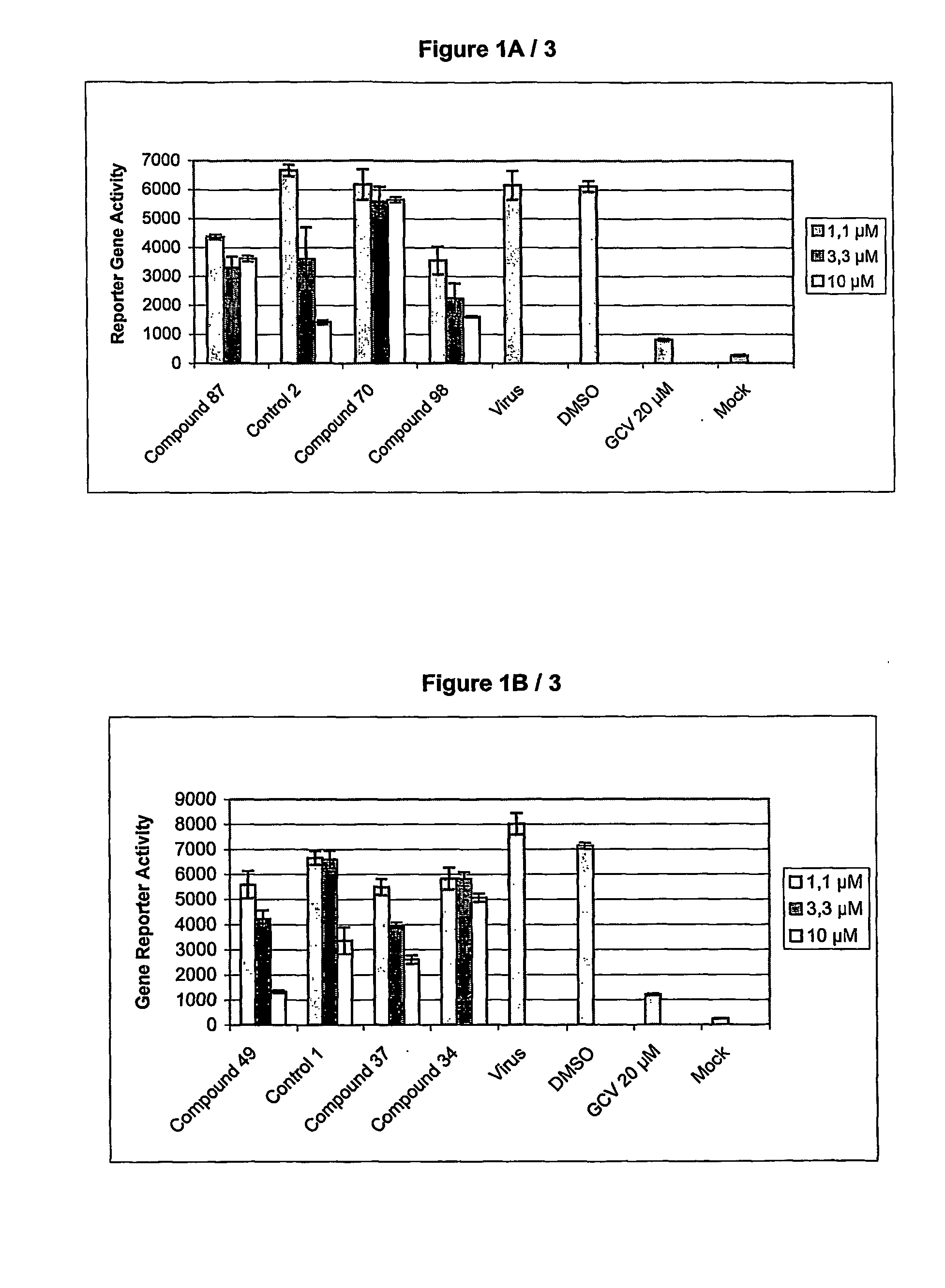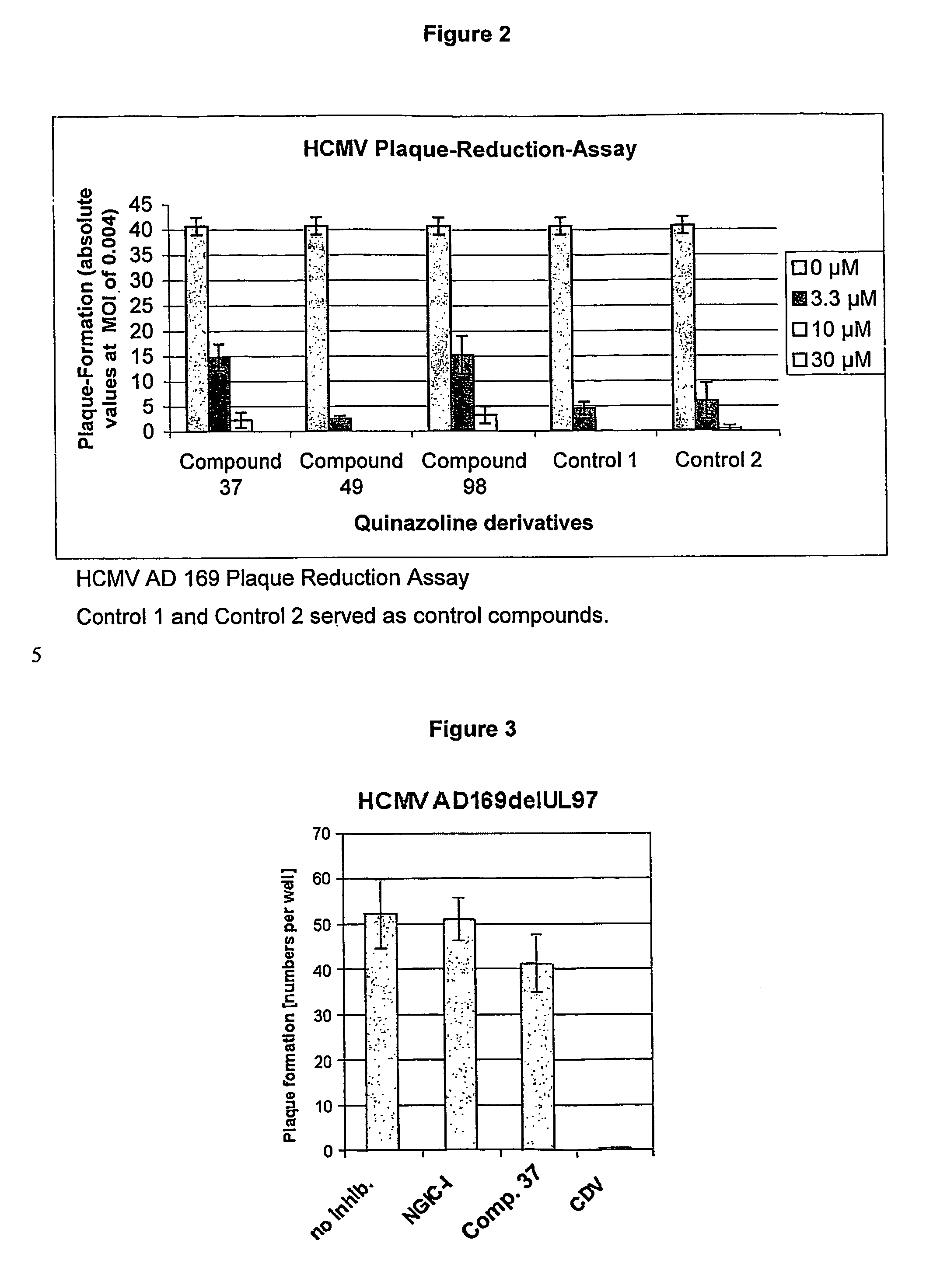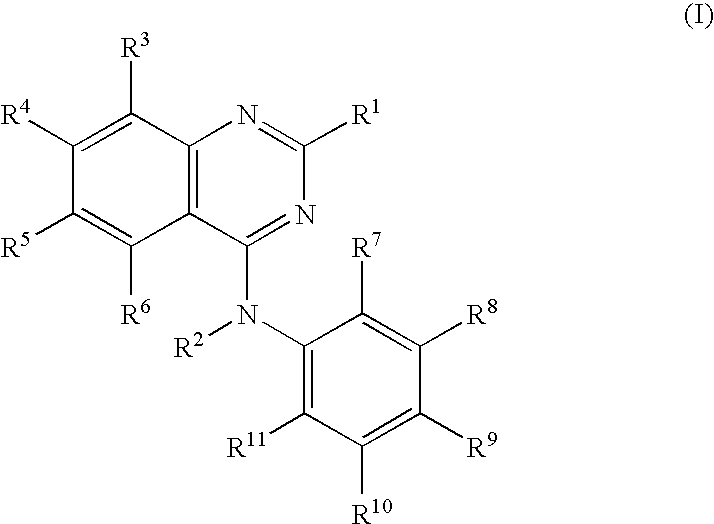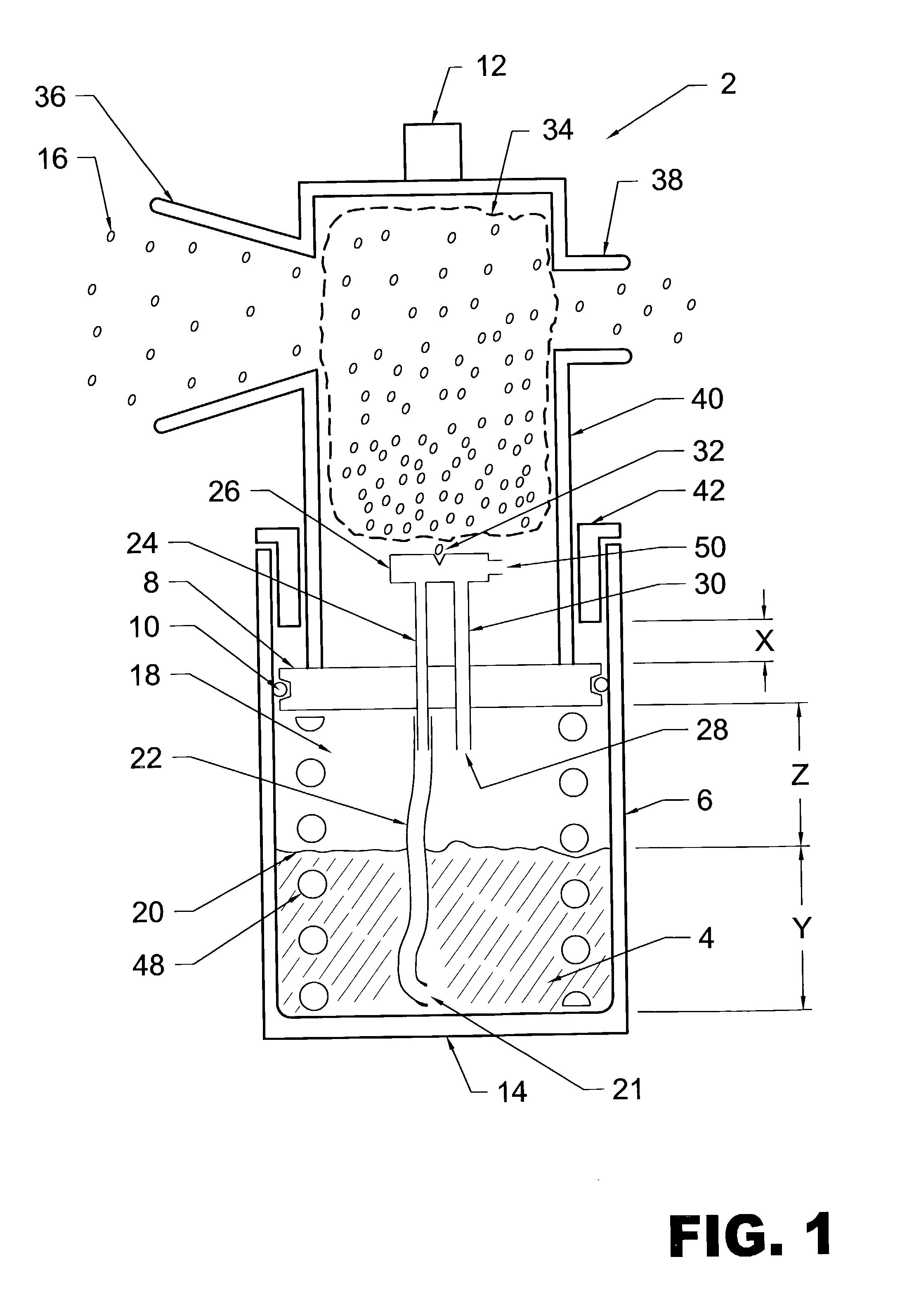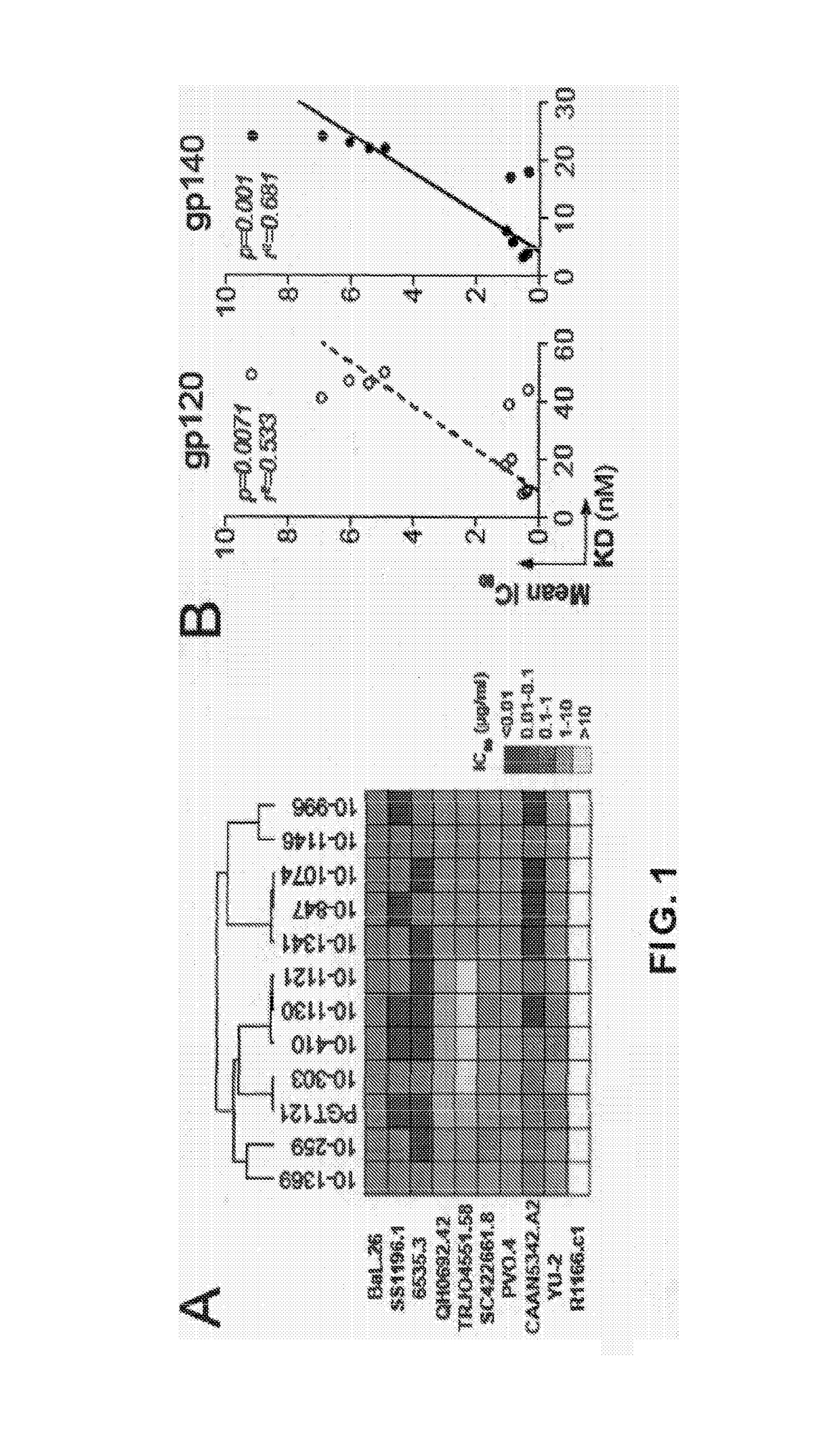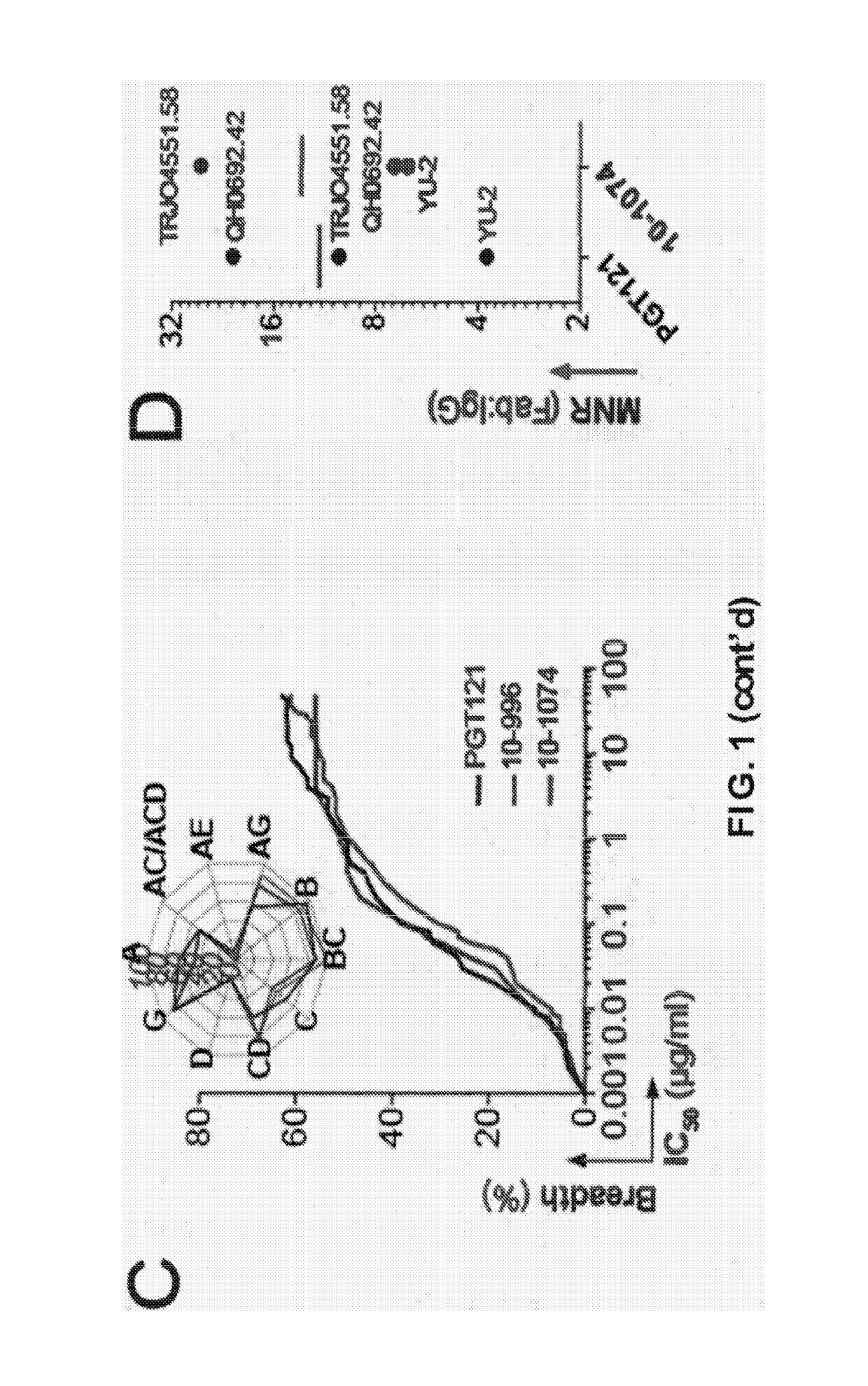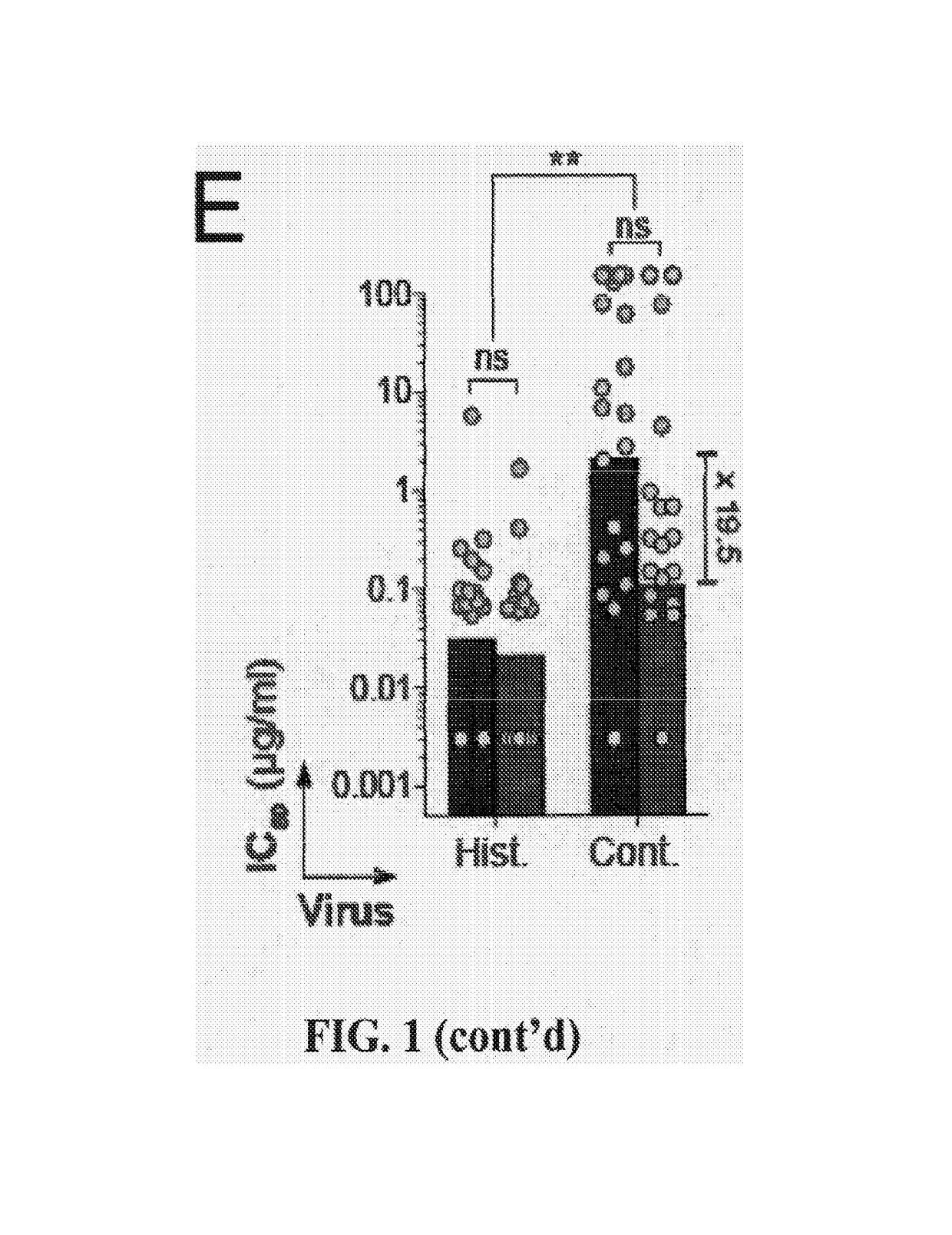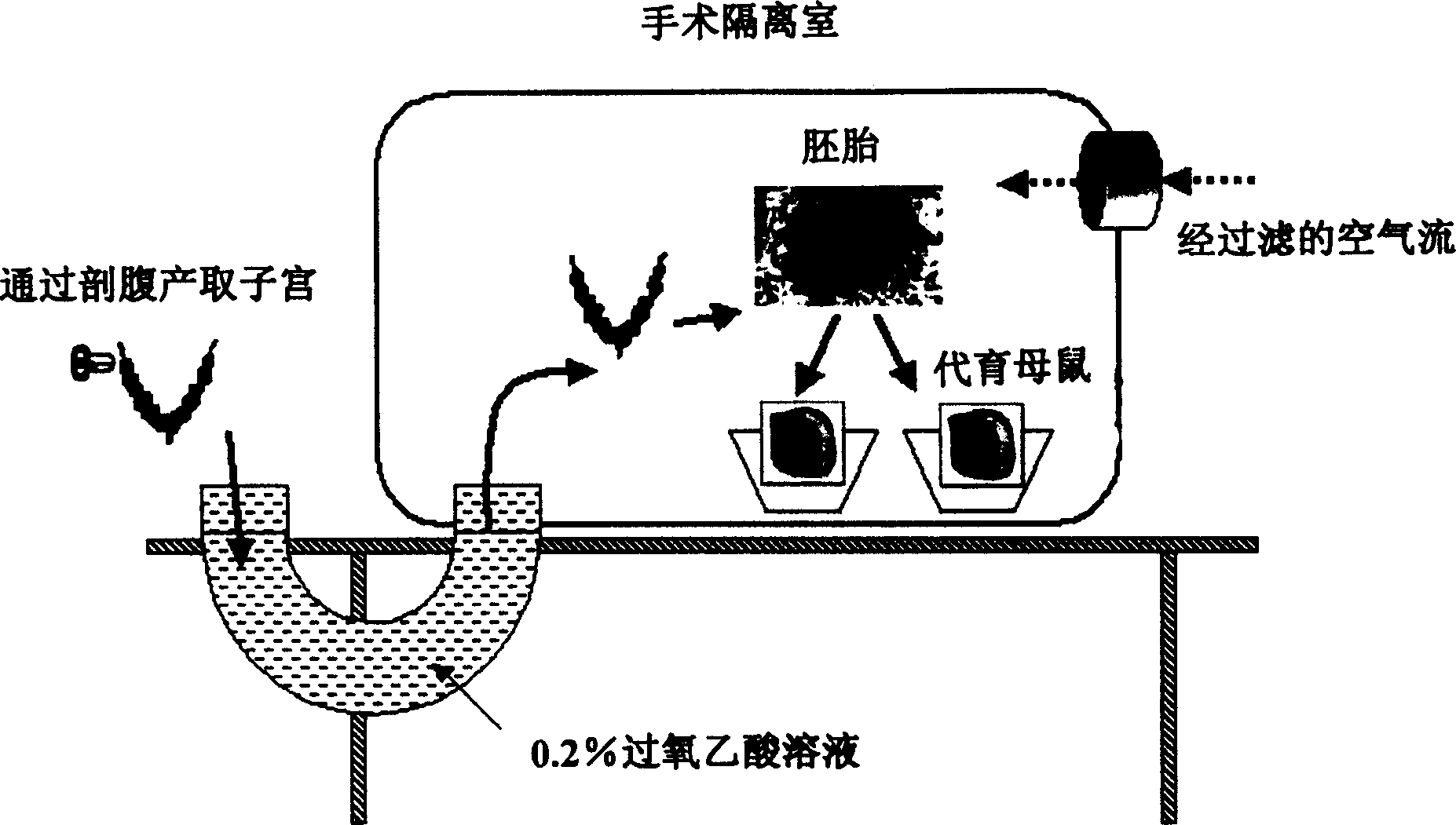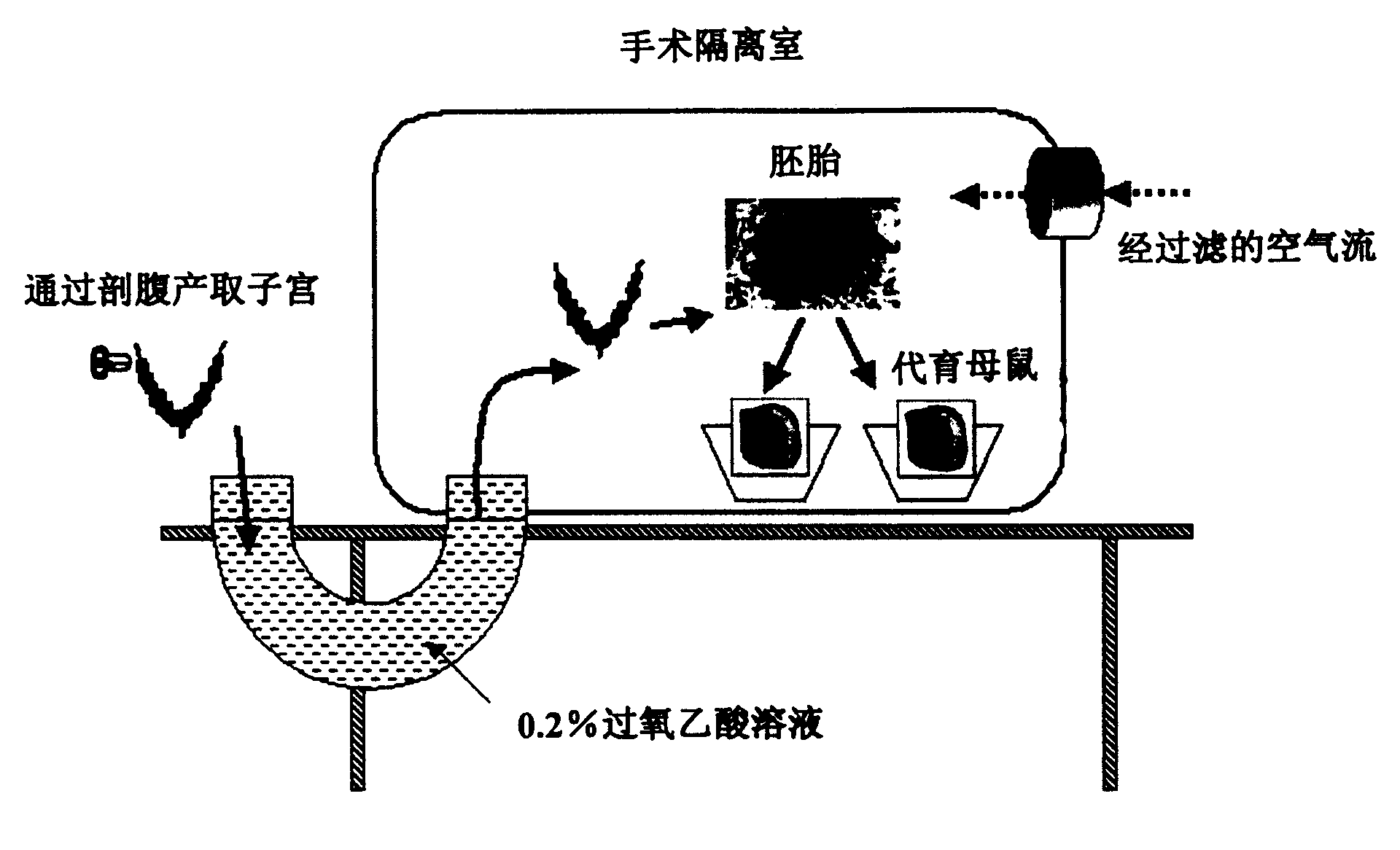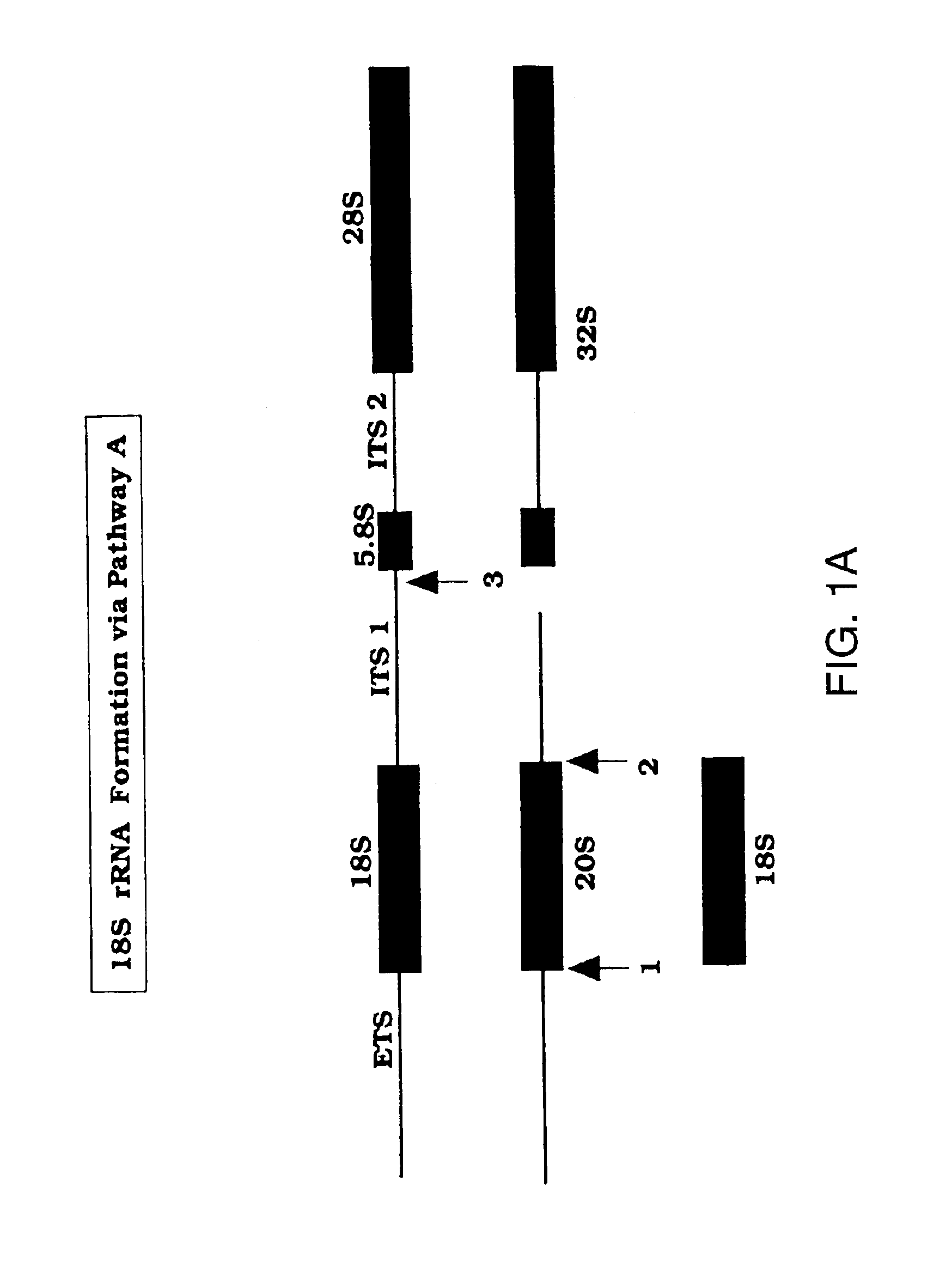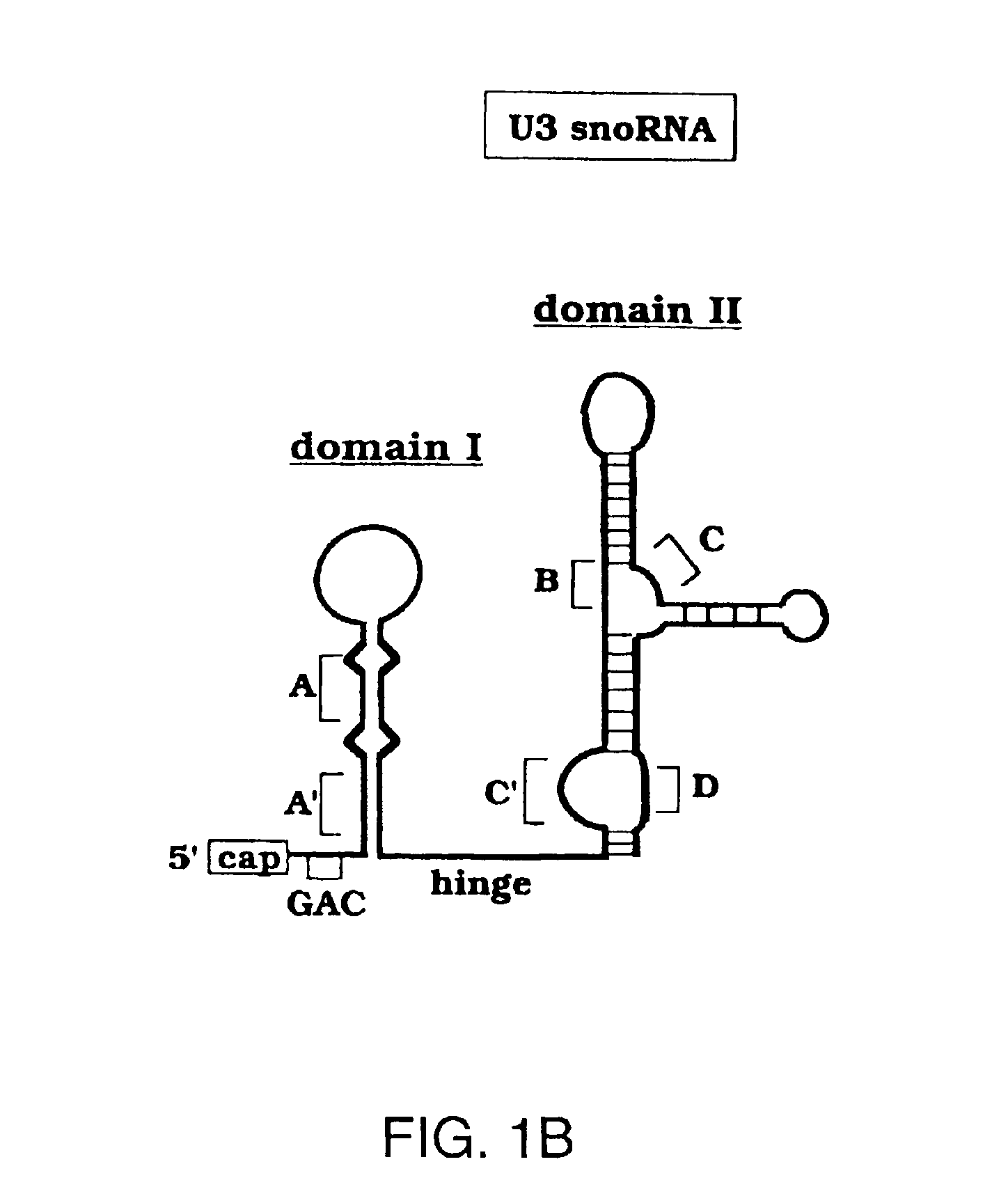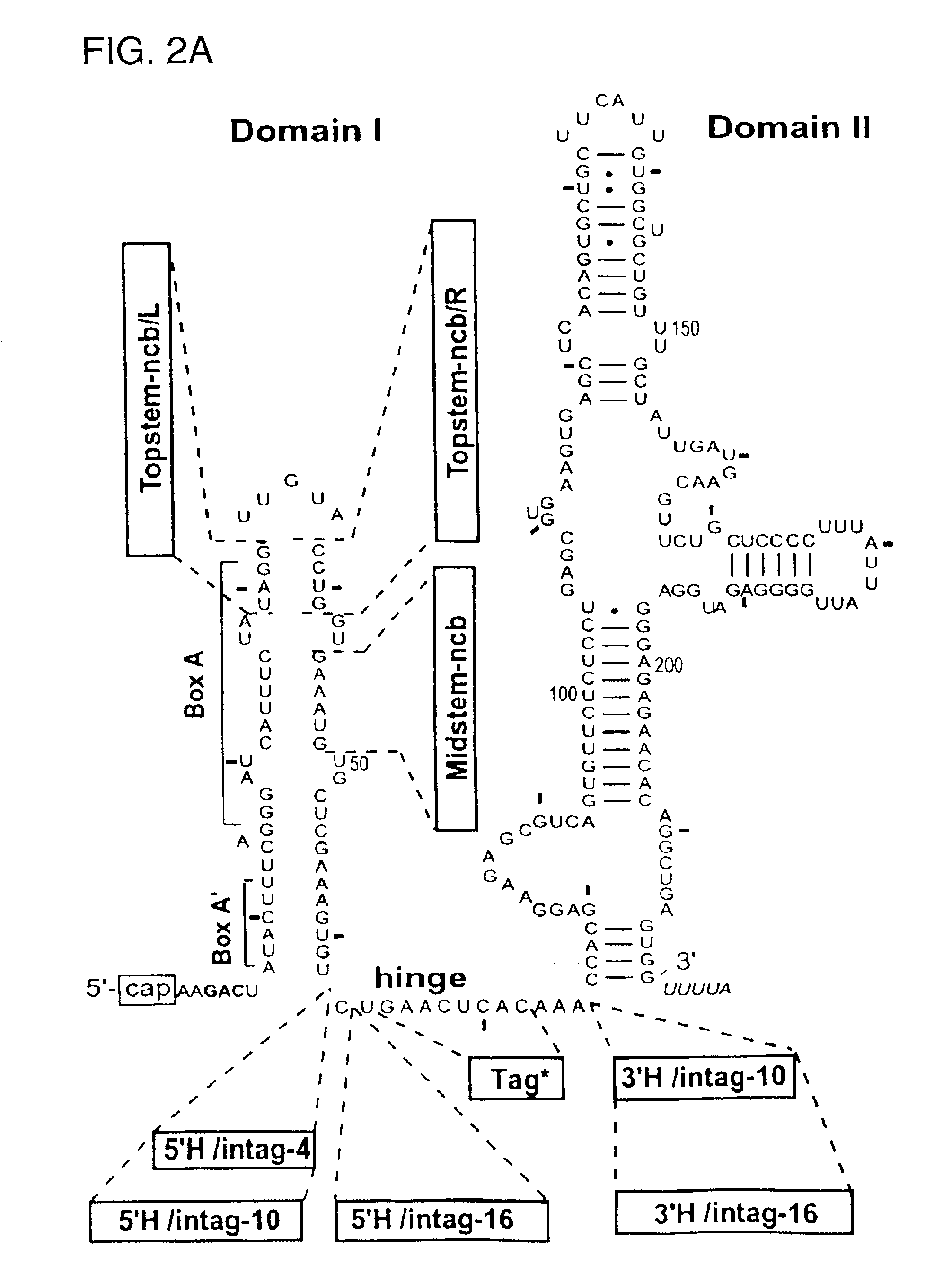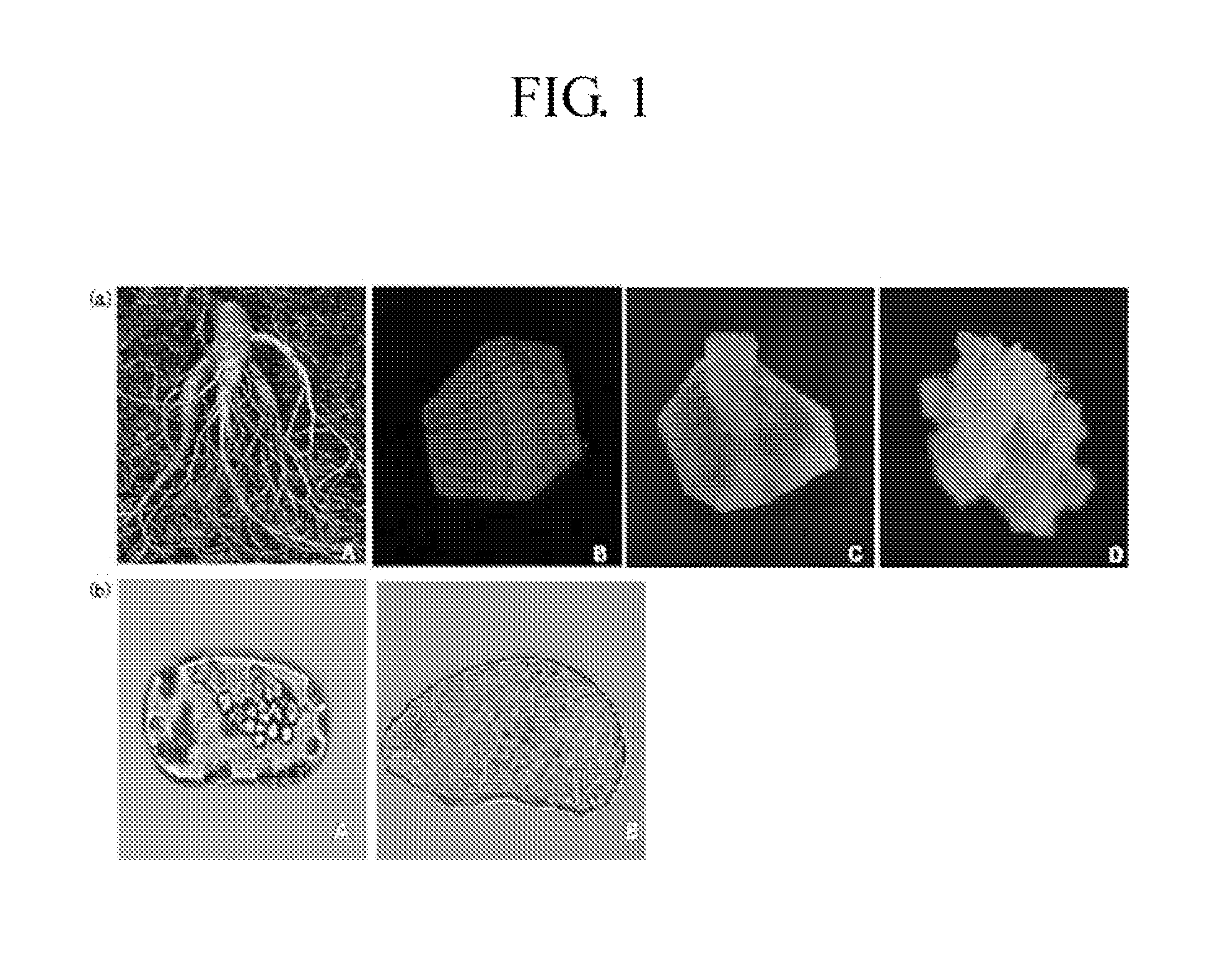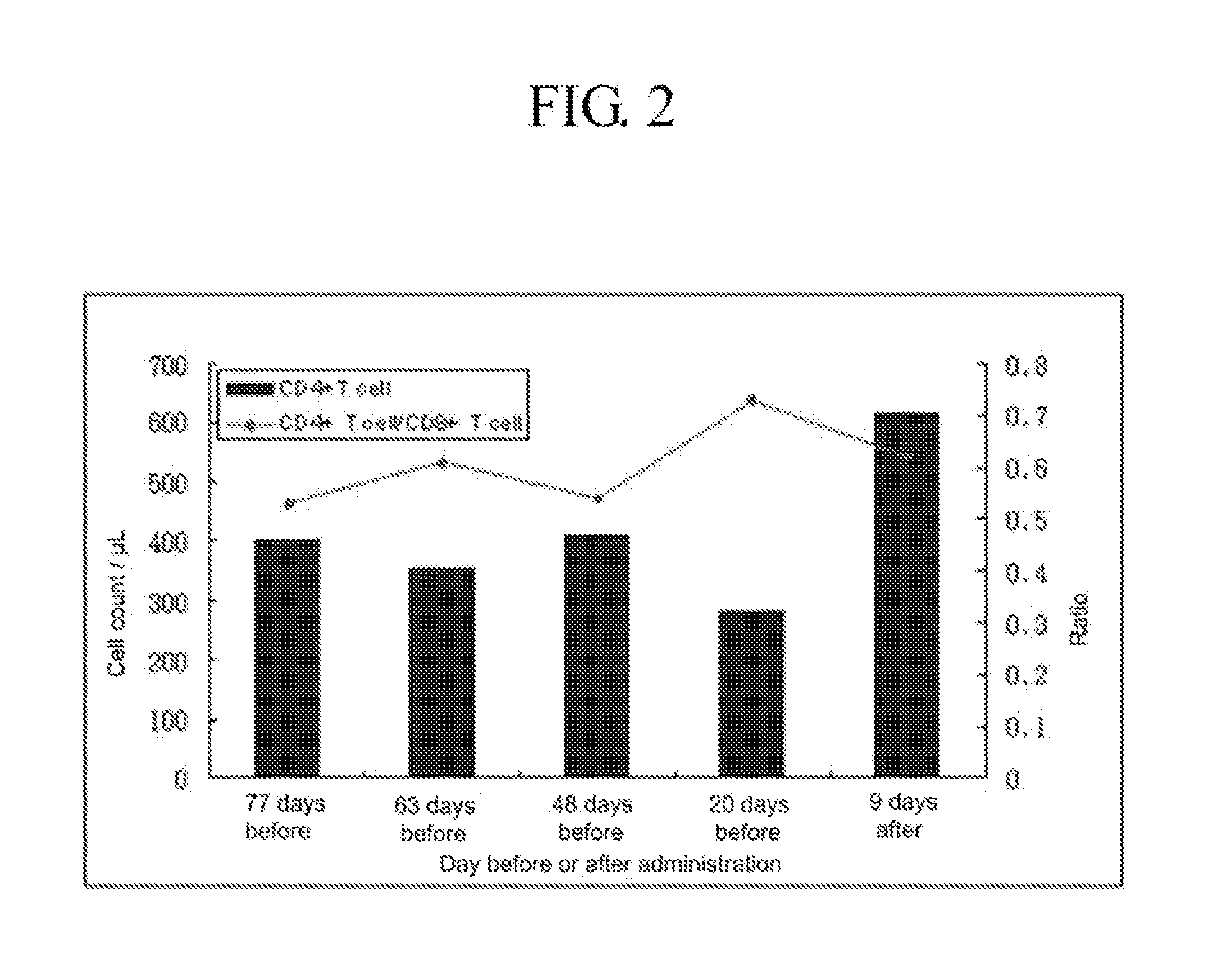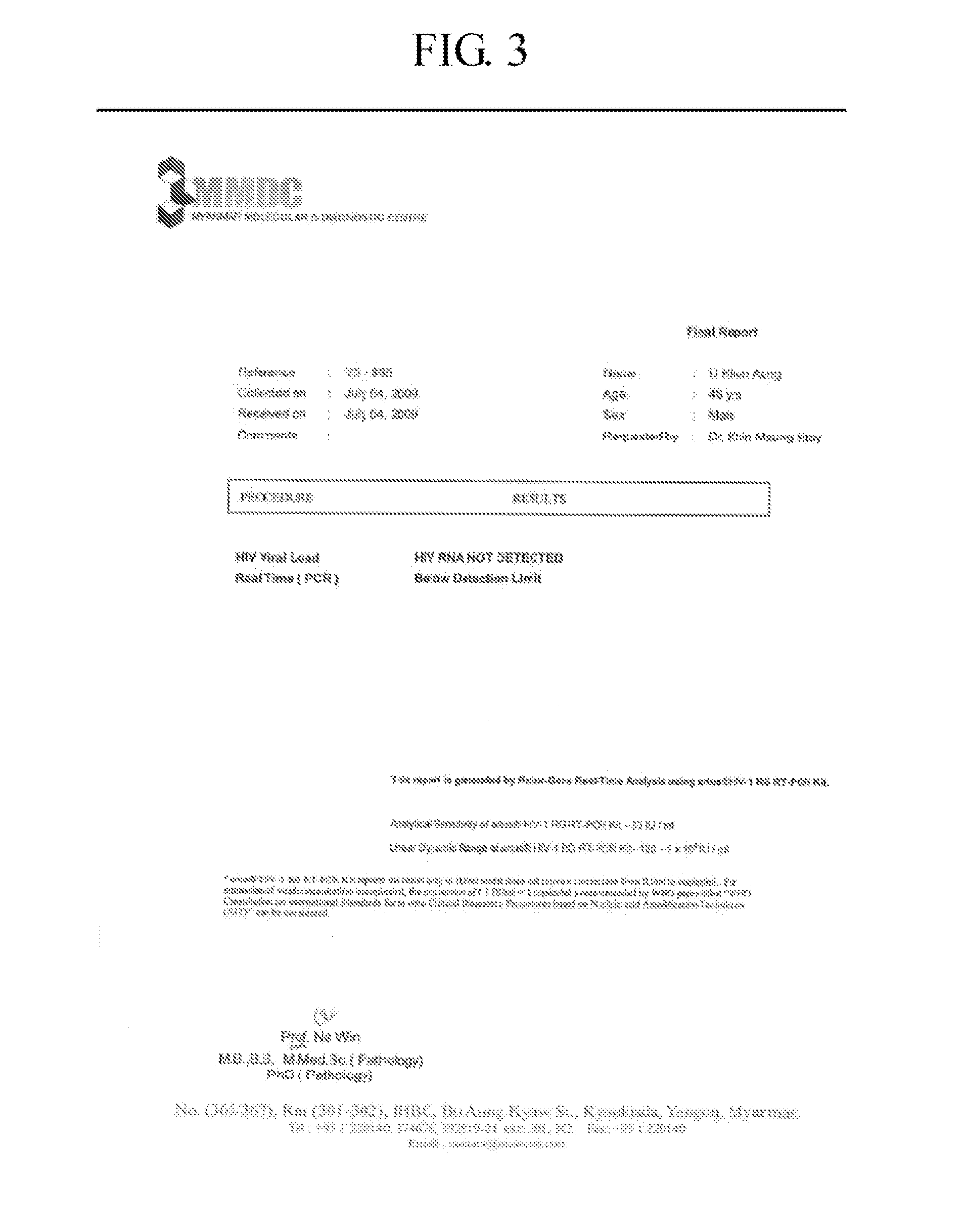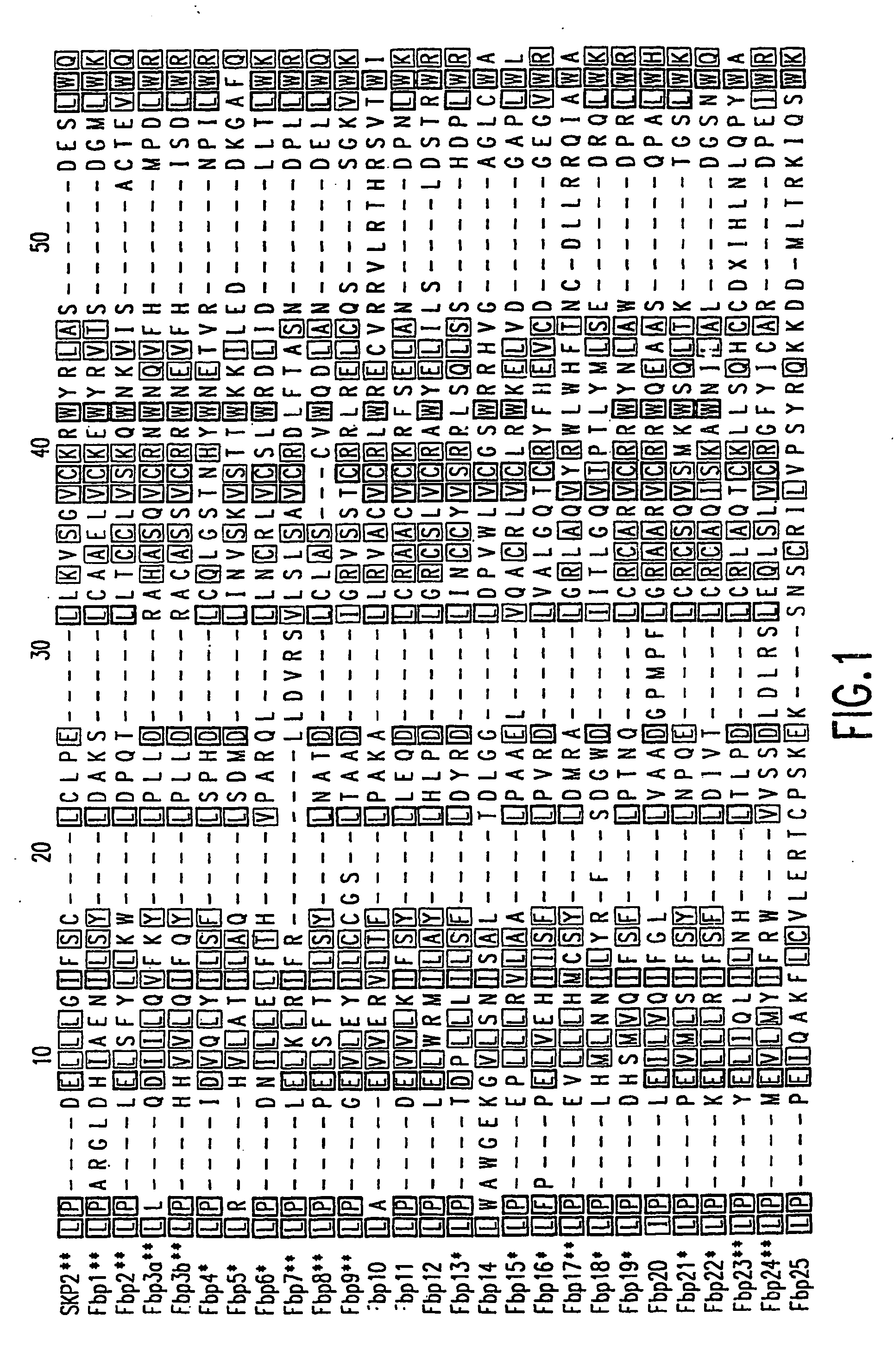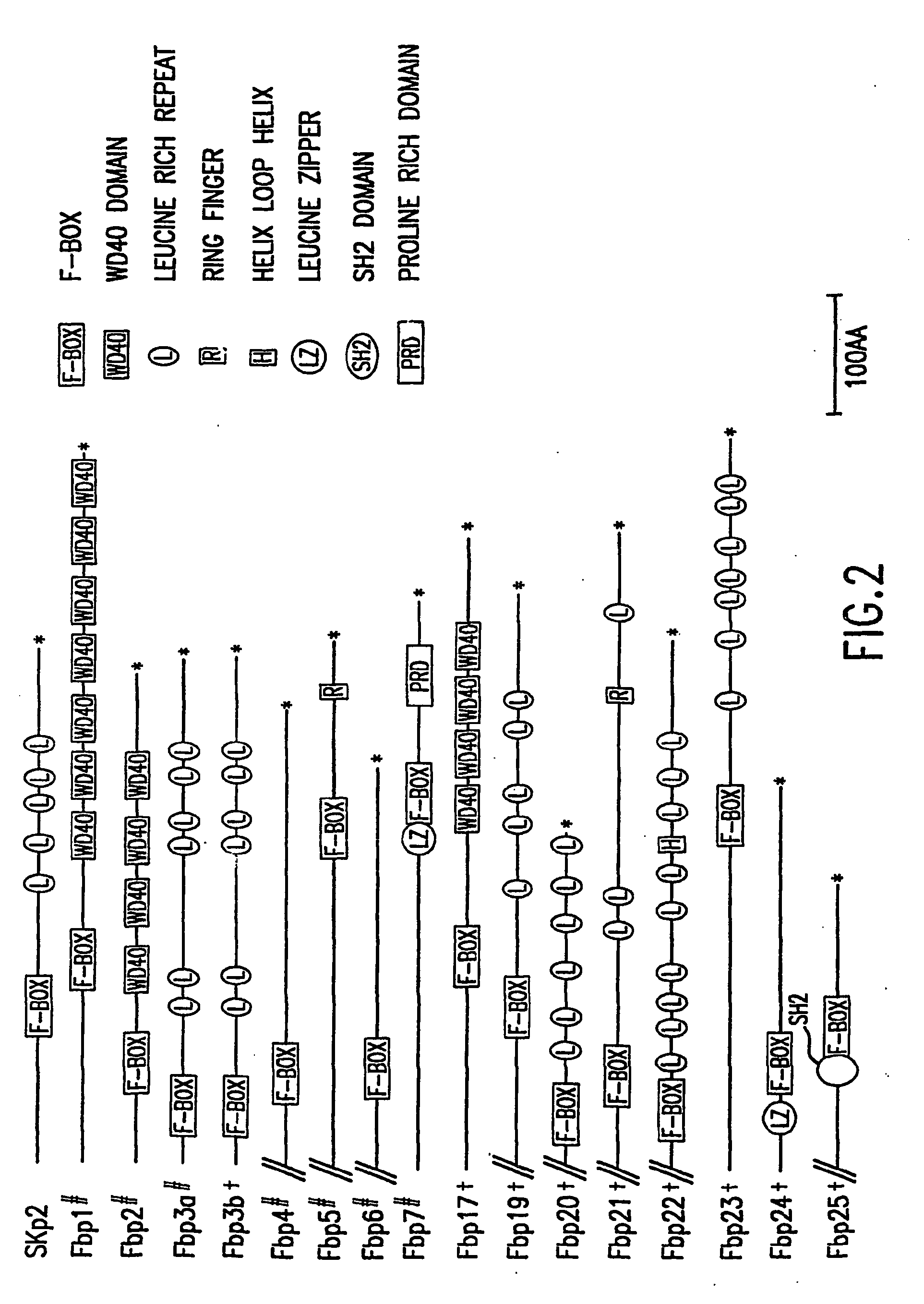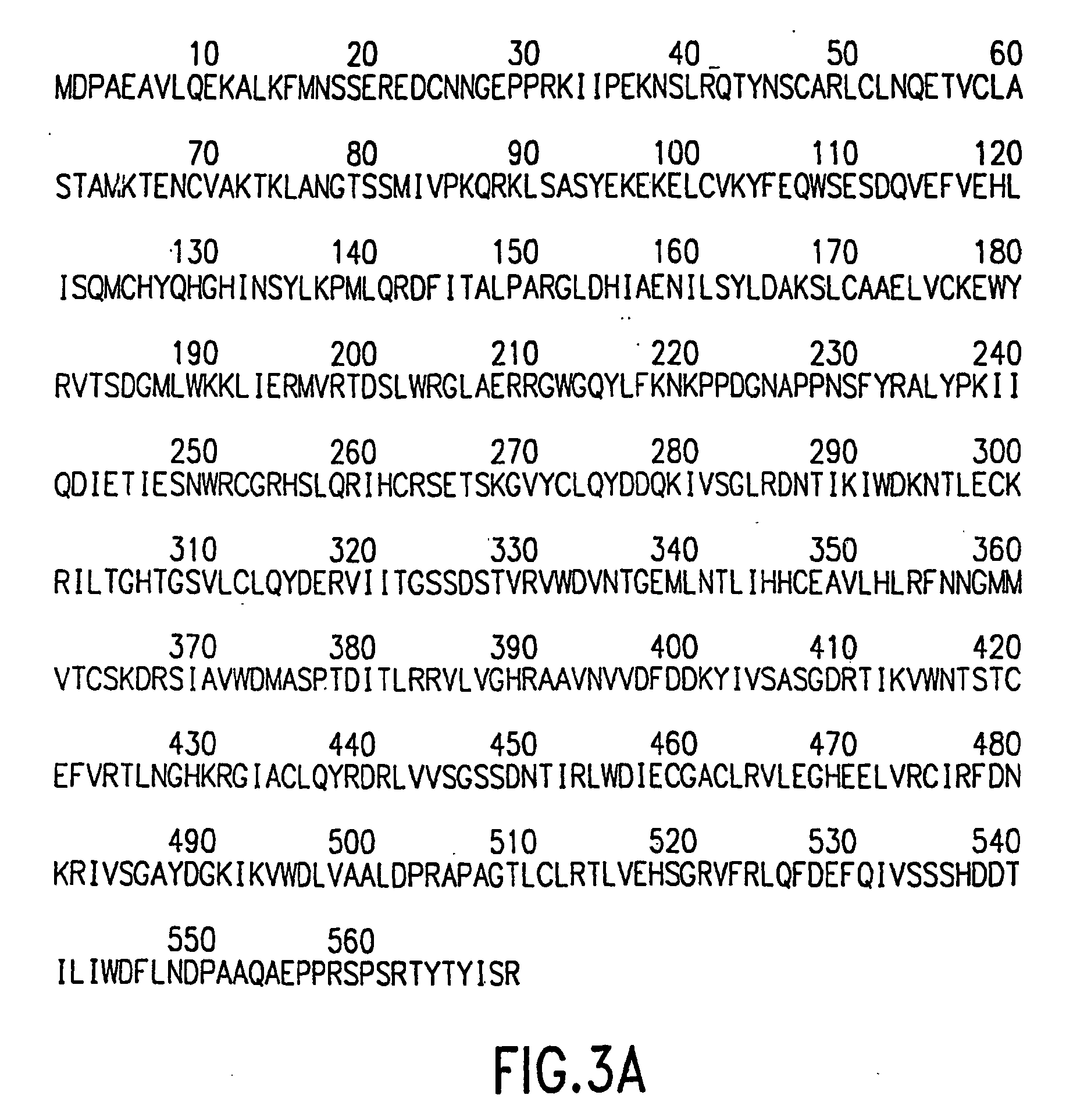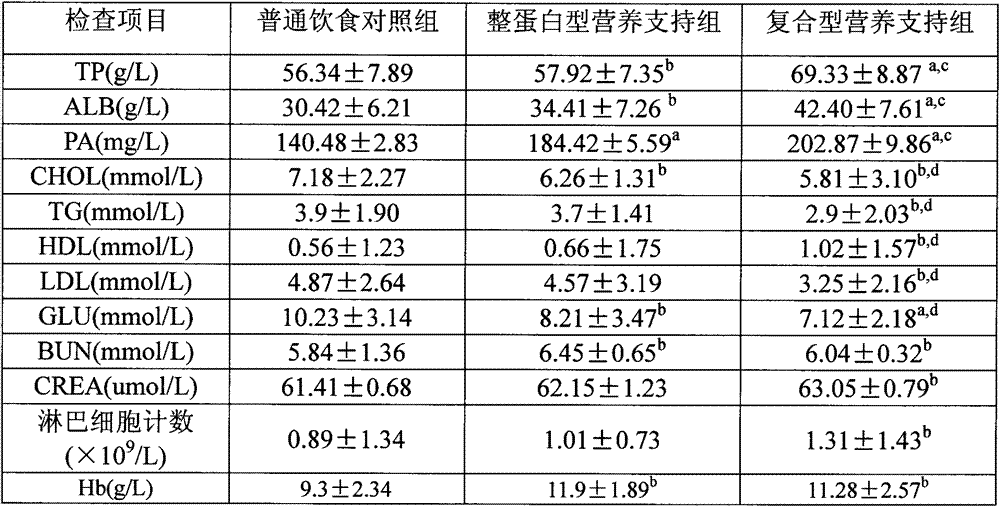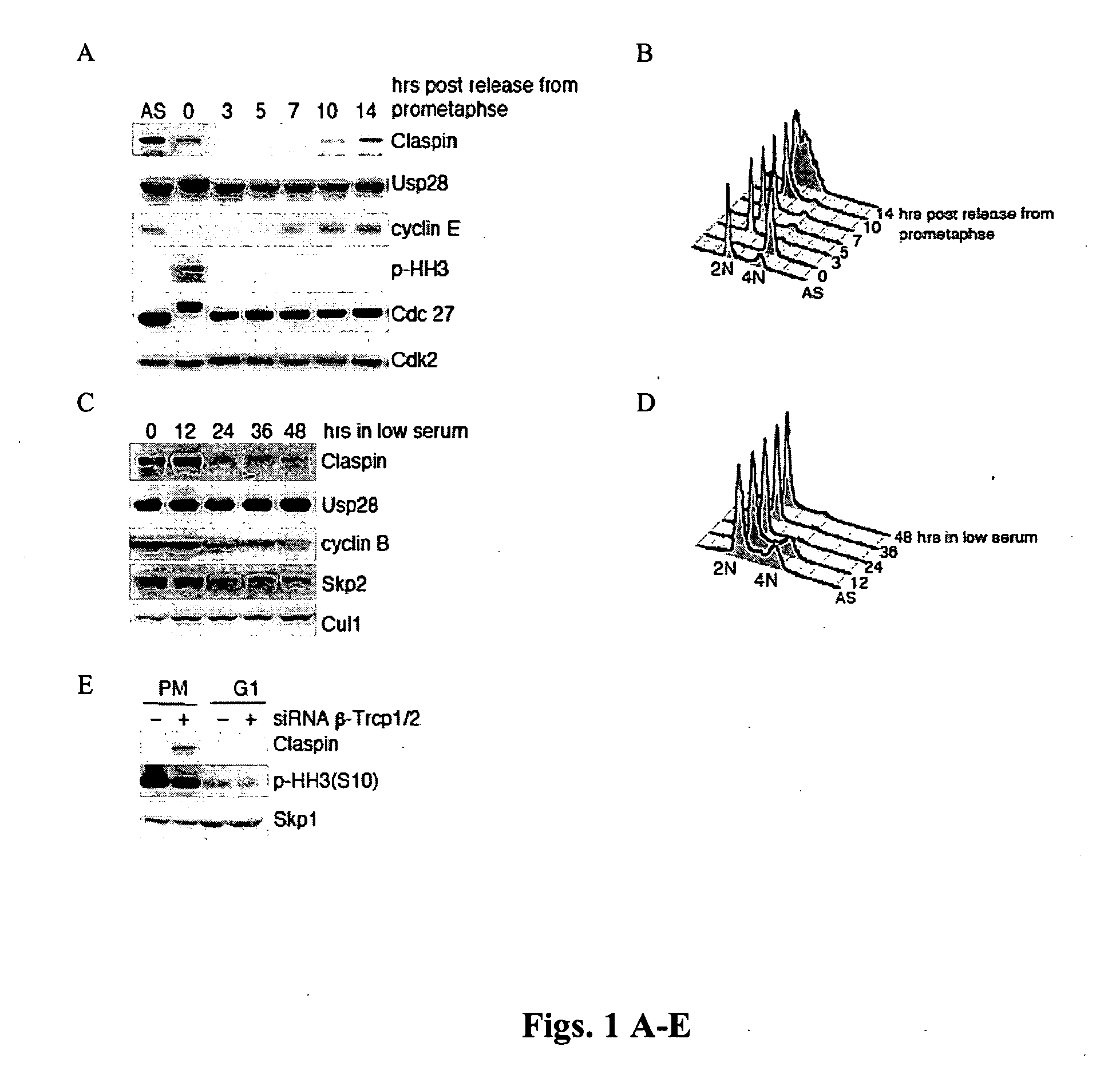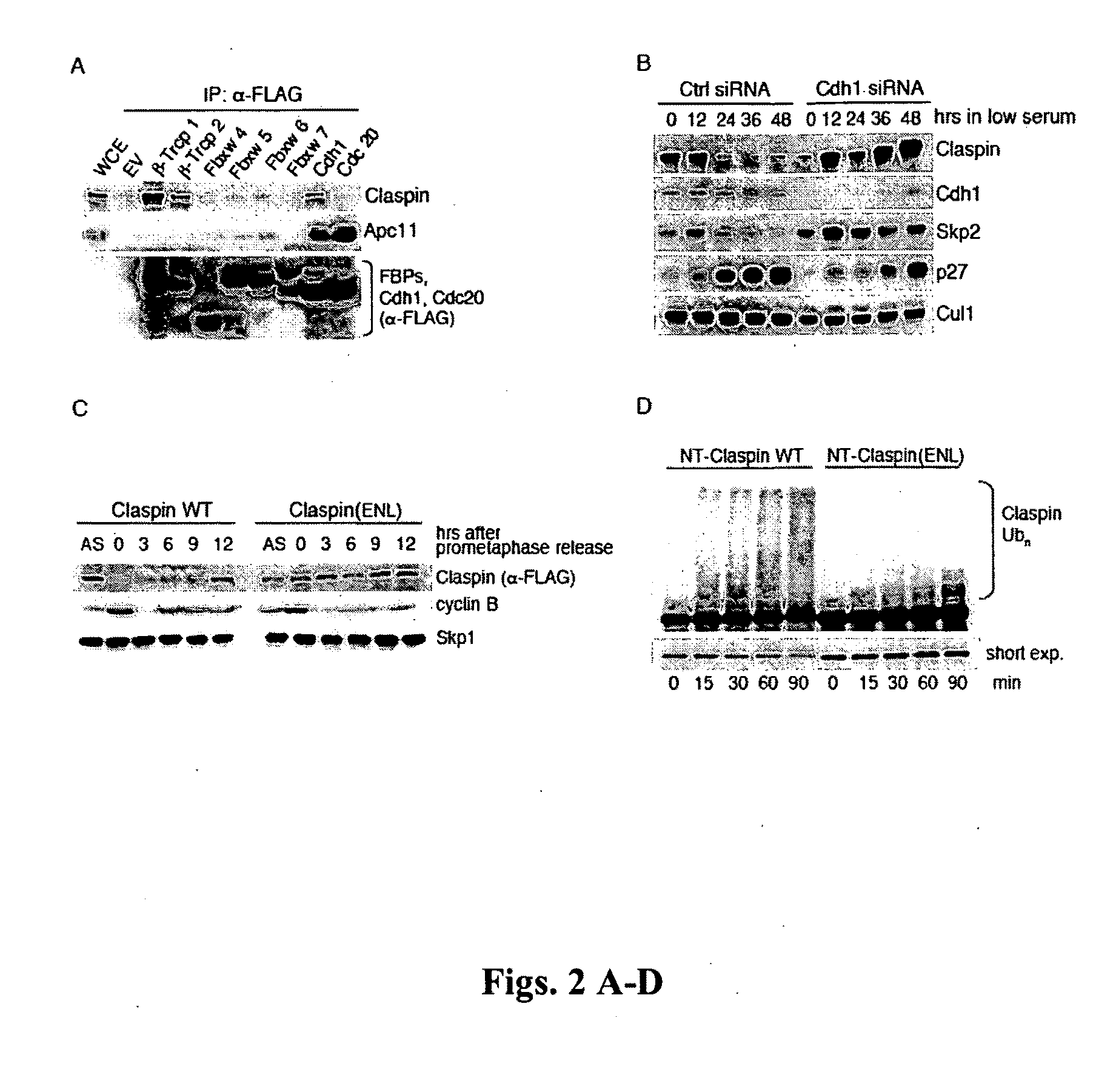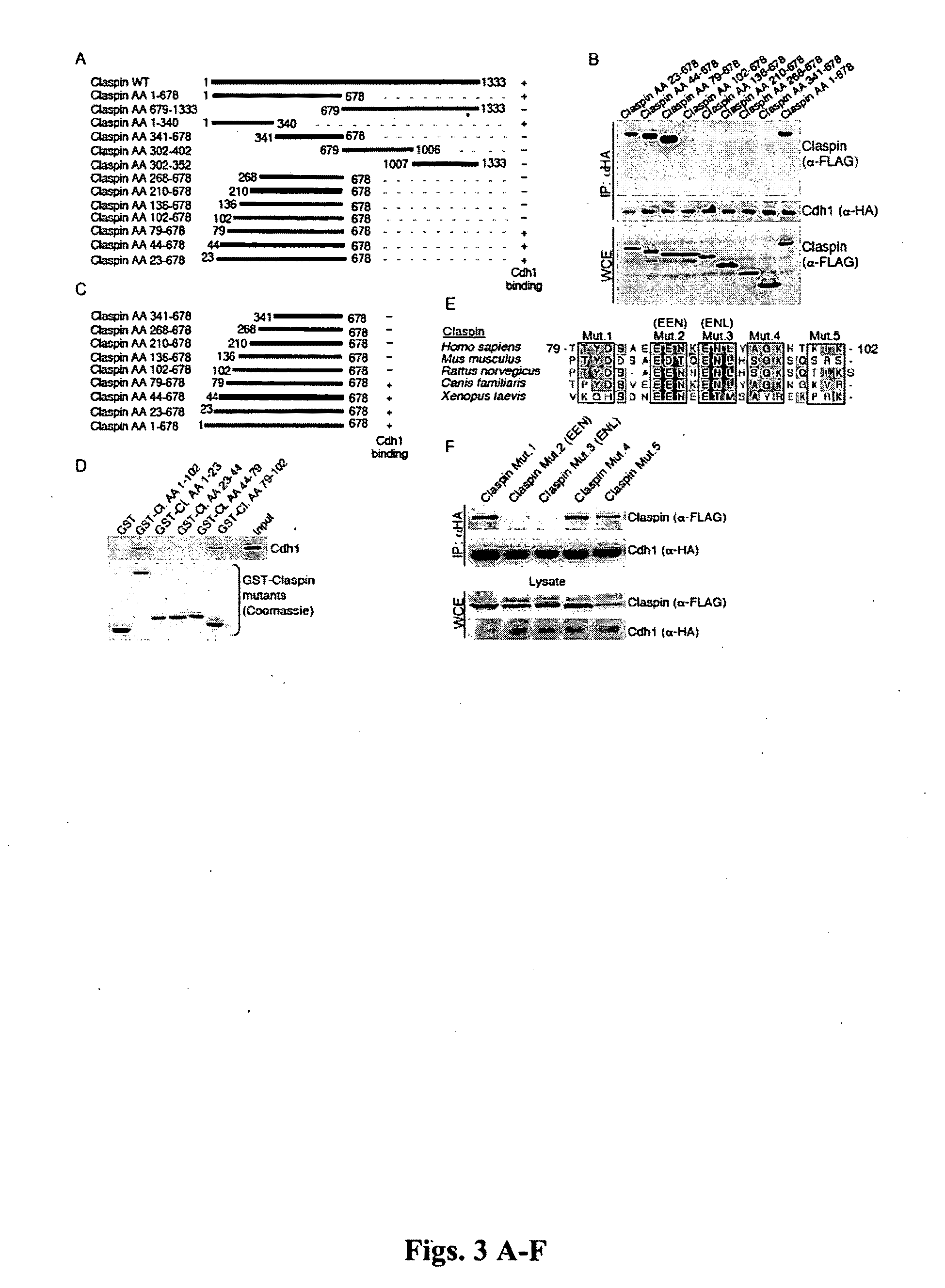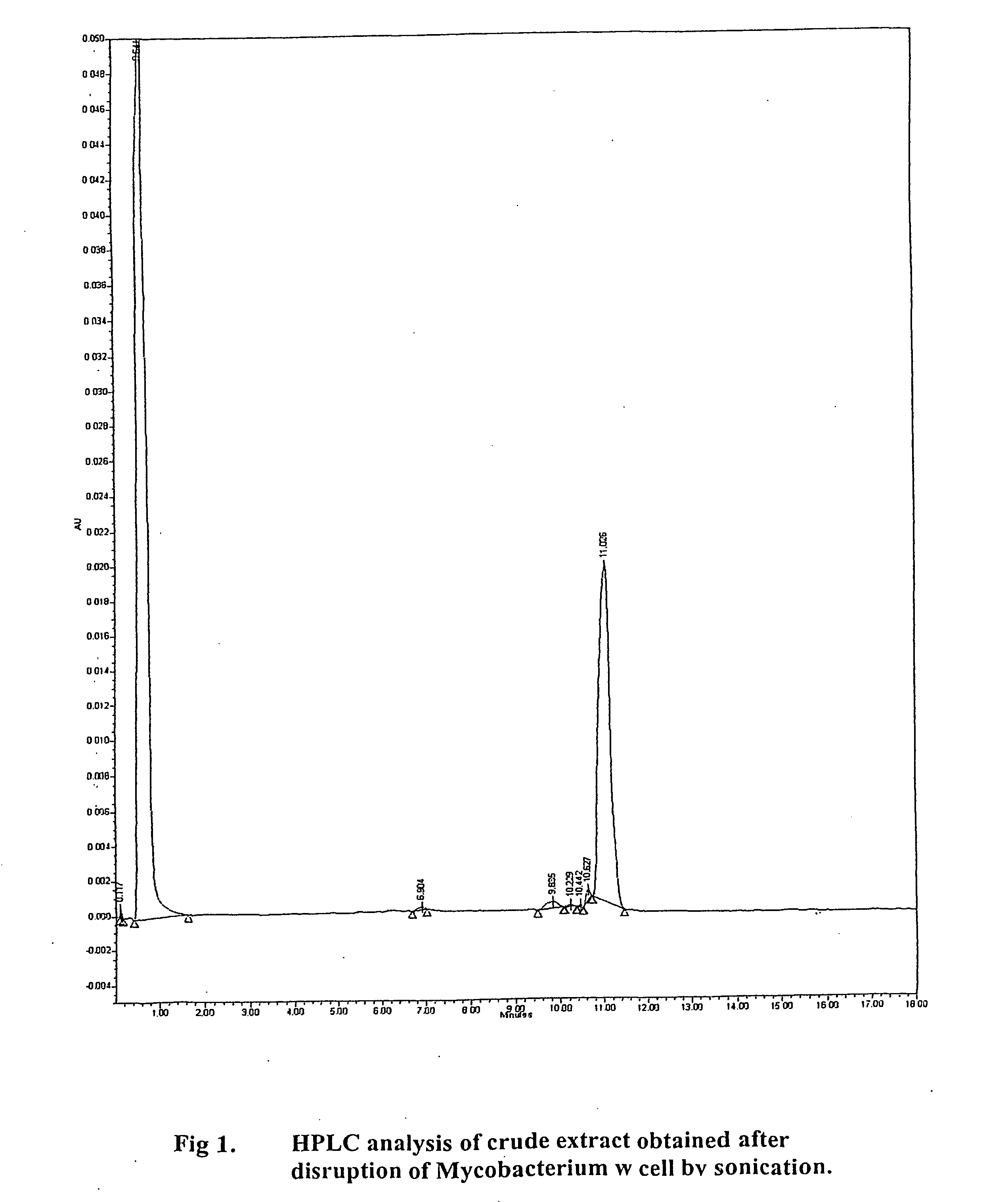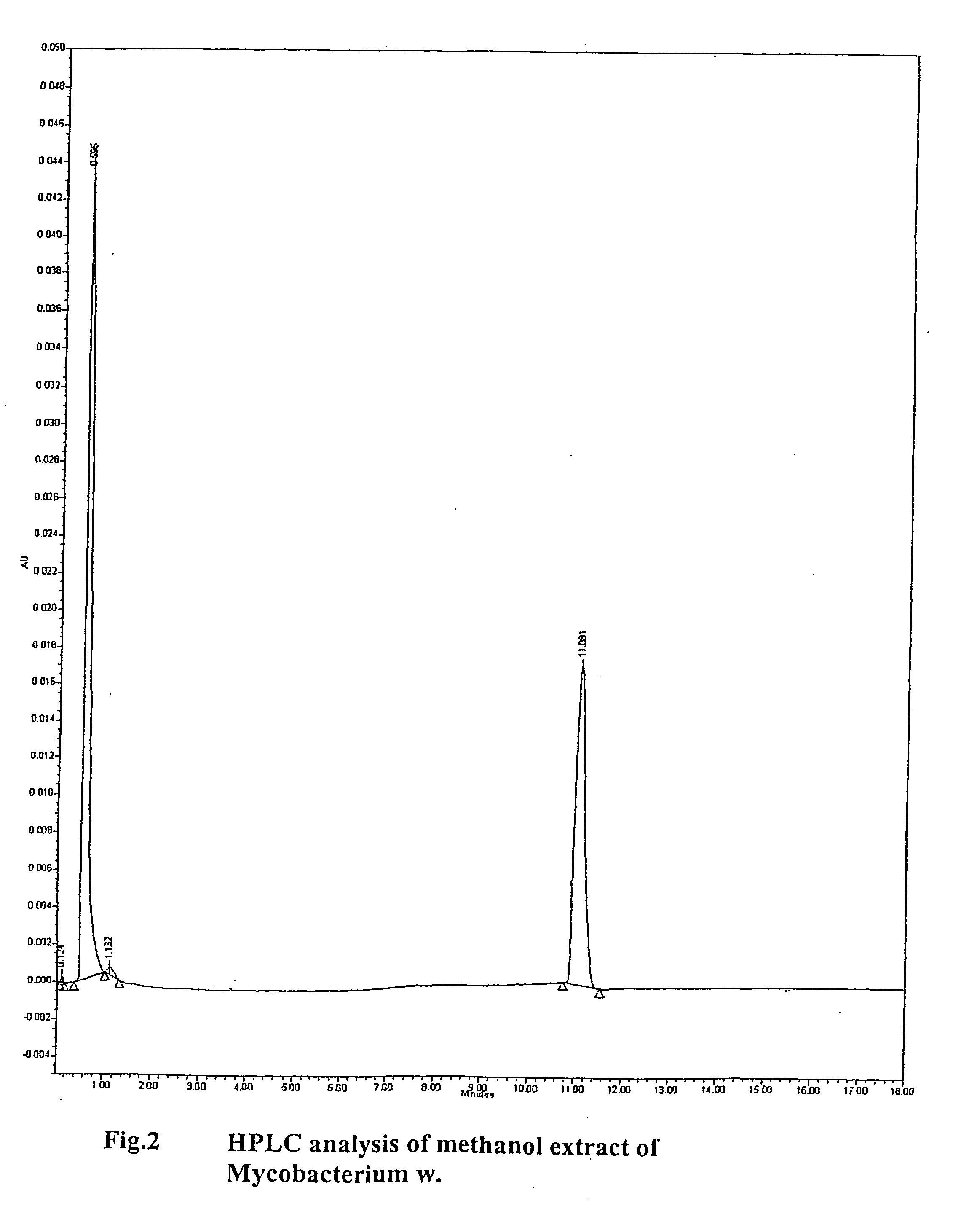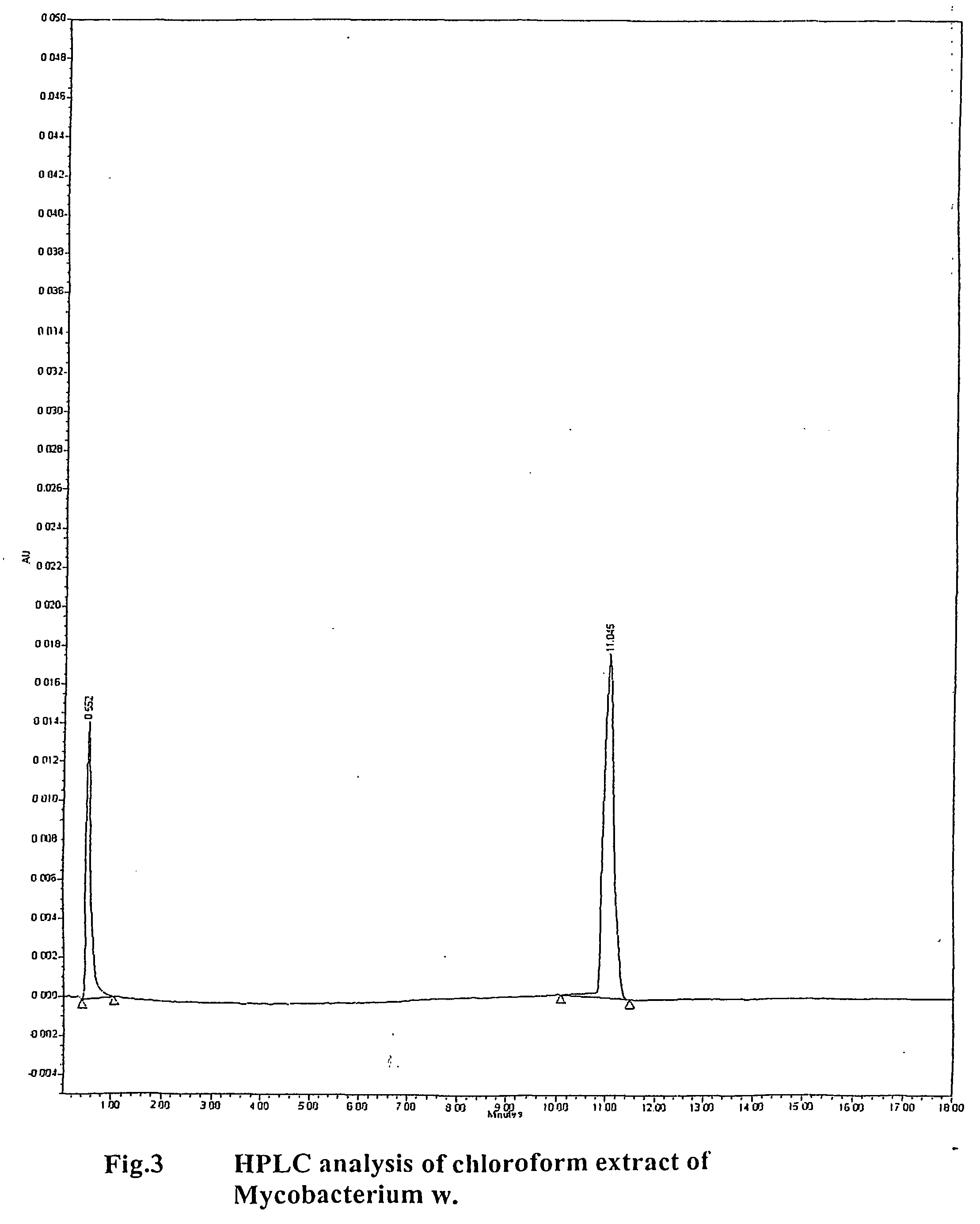Patents
Literature
75 results about "Opportunistic infection" patented technology
Efficacy Topic
Property
Owner
Technical Advancement
Application Domain
Technology Topic
Technology Field Word
Patent Country/Region
Patent Type
Patent Status
Application Year
Inventor
An opportunistic infection is an infection caused by pathogens (bacteria, viruses, fungi, or protozoa) that take advantage of an opportunity not normally available, such as a host with a weakened immune system, an altered microbiota (such as a disrupted gut microbiota), or breached integumentary barriers. Many of these pathogens do not cause disease in a healthy host that has a normal immune system. However, a compromised immune system, which is seriously debilitated and has lowered resistance to infection, a penetrating injury, or a lack of competition from normal commensals presents an opportunity for the pathogen to infect.
Prevention of opportunistic infections in immune-compromised subjects
ActiveUS20100260720A1Reduce the risk of infectionAvoid stickingAntibacterial agentsBiocideFucosylationImmune compromised
This invention relates to a composition suitable for use in the prevention of opportunistic infections in immune-compromised individuals comprising a probiotic Bifidobacterium lactis, Bifidobacterium infantis, Bifidobacterium breve or Bifidobacterium longum and a fucosylated oligosaccharide selected from the group comprising 2′-fucosyllactose, 3′fucosyllactose, difucosyllactose, lacto-N-fucopentaose, lacto-N-fucohexaose, fucosyllacto-N-hexaose and fucosyllacto-N-neohexaose. The invention further extends to the use of such a composition in the prevention of opportunistic infections in immune-compromised individuals.
Owner:SOC DES PROD NESTLE SA
Therapeutic agents—I
InactiveUS7449492B2Antibacterial agentsOrganic active ingredientsChemical fractionChemical synthesis
The present invention relates generally to chemical agents useful in the treatment and prophylaxis of infection by pathogenic or potentially pathogenic entities, or entities capable of opportunistic infection in mammals, including humans and primates, non-mammalian animals and avian species. More particularly, the present invention provides a chemical agent of the macrocyclic diterpene family obtainable from a member of the Euphorbiaceae family of plants or botanical or horticultural relatives thereof or derivatives or chemical analogues or chemically synthetic forms of the agents for use in the treatment or prophylaxis of infection by pathogenic entities in mammalian, animal and avian subjects. The present invention further contemplates a method for the prophylaxis and / or treatment in mammalian, animal or avian subjects of infection or potential infection by pathogenic entities by the topical or systemic administration of a macrocyclic diterpene obtainable from a member of the Euphorbiaceae family of plants or their botanical or horticultural derivatives or a derivative, chemical analogue or chemically synthetic form of the agent. The chemical agent of the present invention may be in the form of a purified compound, mixture of compounds, a precursor form of one or more of the compounds capable of chemical transformation into a therapeutically active agent or in the form of a chemical fraction, sub-fraction, preparation or extract of the plant.
Owner:AF 30 APRIL 2003 +1
Dominant negative variants of methionine aminopeptidase 2 (MetAP2) and clinical uses thereof
InactiveUS20050032221A1Increase ratingsEliminate negative effectsBiocideCompound screeningMethionine aminopeptidaseMethionine biosynthesis
Inhibitors of type 2 methionine aminopeptidases (“MetAP2”), specifically dominant negative variants of MetAP2, both polypeptides and encoding polynucleotides, are provided. Also provided are methods of treating subjects suffering from cancer, diseases mediated by the immune system or opportunistic infections using inhibitors of MetAP2. Also provided are high through put screens and assays to detect and identify inhibitors of MetAP2 and downstream effectors of MetAP2.
Owner:CHANG YIE HWA +2
Antimicrobial therapeutic compositions and method of use
InactiveUS6921539B2Enhanced broad based antimicrobial activityEasy to useBiocideHydroxy compound active ingredientsMicroorganismProcaine
The invention provides therapeutic antimicrobial compositions and methods for their use based on natural organic phenolic compounds combined with pharmacological agents. The antimicrobial activities of each carvacrol and thymol are believed to be enhanced, while the pharmacological properties of procaine and related compounds are added to provide their unique properties to facilitate usefulness and effectiveness in humans. The therapeutic compositions are active against bacterial, fungal, and protozoan infections. The forms of the invention are intended to treat various internal infections through parenteral, subcutaneous, intradermal, intravenous, and intramuscular injections. They are also intended as useful agents to treat microbial infections that have become resistant to conventional anitibiotics as well as secondary opportunistic infections.
Owner:EUROVLOOT +2
Allogeneic cellular immunotherapy for invasive pulmonary aspergillosis (IPA)
ActiveUS20060115487A1Snake antigen ingredientsVertebrate antigen ingredientsAllogeneic cellGraft versus host disease induction
A method for stimulating the immune system in immunocompromised patients in order to treat opportunistic infection. The method involves the infusion of intentionally mismatched allogeneic cells. In order to prevent graft vs. host disease complications, the allogeneic cells can be irradiated prior to infusion.
Owner:MIRROR BIOLOGICS INC +1
Ubiquitin ligases as therapeutic targets
InactiveUS6720181B1Enhance ubiquitin ligase gene expressionOrganic active ingredientsFungiUbiquitin ligaseENCODE
The present invention relates to the discovery, identification and characterization of nucleotides that encode novel substrate-targeting subunits of ubiquitin ligases. The invention encompasses nucleotides encoding novel substrate-targeting subunits of ubiquitin ligases: FBP1, FBP2, FBP3, FBP4, FBP5, FBP6, FBP7, FBP8, FBP9, FBP10, FBP11, FBP12, FBP13, FBP14, FBP15, FBP16, FBP17, FBP18, FBP19, FBP20, FBP21, FBP22, FBP23, FBP24, and FBP25, transgenic mice, knock-out mice, host cell expression systems and proteins encoded by the nucleotides of the present invention. The present invention relates to screening assays that use the novel substrate-targeting subunits to identify potential therapeutic agents such as small molecules, compounds or derivatives and analogues of the novel ubiquitin ligases which modulate activity of the novel ubiquitin ligases for the treatment of proliferative and differentiative disorders, such as cancer, major opportunistic infections, immune disorders, certain cardiovascular diseases, and inflammatory disorders. The invention further encompasses therapeutic protocols and pharmaceutical compositions designed to target ubiquitin ligases and their substrates for the treatment of proliferative disorders.
Owner:NEW YORK UNIV
Agent for the treatment of infections
InactiveUS6030980AImprove recovery effectGood effectBiocideKetone active ingredientsMedicineBULK ACTIVE INGREDIENT
The present invention relates an agent for the treatment of infections, which comprises as the active ingredient at least one member selected from the group consisting of aconite-alkaloids, aconite tuber and an extract thereof, gingerol and analogues thereof, and rhizomes of ginger and a substance therefrom. The agent of the present invention has significant infection-protective and recovery effects and is useful to treat and prevent a variety of infections such as virus infections, fungal infections, opportunistic infections, etc.
Owner:SUZUKI FUJIO
Compositions and methods of use of phorbol esters
Methods and compositions containing a phorbol ester or a derivative of a phorbol ester are provided for the treatment of cytopathic diseases. Cytopathic diseases may be caused by a variety means suchas viral infections like HIV and AIDS, or the development of neoplasms in a mammalian subject. The methods and compositions of the invention are effective for inhibiting de novo HIV infection, upregulating viral expression from latent provirus, inhibiting HIV-induced cytopathic effects, down regulating the HIV receptor, increasing ThI cytokine expression, decreasing Th2 cytokine expression, increasing ERK phosphorylation, inducing apoptosis in malignant cells, inducing remission, maintaining remission, as chemotherapeutic agents, as well as for decreasing symptoms of cytopathic diseases and opportunistic infections that may accompany such diseasesl. Additional compositions and methods are provided which employ a phorbol ester or derivative compound in combination with at least one additional agent such as those used in HAART protocols, therapeutic agents used to treat opportunistic infections due to HIV, or chemotherapeutic agents to yield more effective treatment tools against cytopathic diseases in mammalian subjects.
Owner:BIOSUCCESS BIOTECH CO LTD
Touch-Free Medical Instrument Sanitation Station And Method Thereof
ActiveUS20130306105A1Quickly and easily sterilizeSimple methodCarpet cleanersFloor cleanersAuscultationHands free
A cleansing unit for enhanced sanitation compliance and for eradicating a healthcare facility-hosted opportunistic infections, the unit comprising: a hands-free automatic dispenser of disinfectant agent that dispenses such agent either directly on at least one agitation membrane support post having a condom-like mounted textured sheath or directly on the auscultation portion of the stethoscope, said textured sheath designed to provide a frictional agitation of an auscultation portion of a stethoscope to effectively clean and sanitize the stethoscope, and method thereof.
Owner:SPFM
Compositions comprising natural agents for the treatment of HIV-associated opportunistic infections and complications and methods for preparing and using compositions comprising natural agents
InactiveUS20050266105A1Efficient infectionReduce loadBiocideUnknown materialsZanthoxylum bungeanumOpportunistic infection
The present invention pertains to compositions for the treatment of HIV-related opportunistic infections and complications. More specifically, the present invention is directed to a composition comprising Zanthoxylum gillettii and Anogeissus leiocarpus, in combination with citrus juice, or biomass extracts isolated therefrom, and methods of using and manufacturing the same.
Owner:ASHIAGBOR KWAME +6
Broadly-Neutralizing Anti-HIV Antibodies
The present invention relates to anti-HIV antibodies. Also disclosed are related methods and compositions. HIV causes acquired immunodeficiency syndrome (AIDS), a condition in humans characterized by clinical features including wasting syndromes, central nervous system degeneration and profound immunosuppression that results in life-threatening opportunistic infections and malignancies. Since its discovery in 1981, HIV type 1 (HIV-1) has led to the death of at least 25 million people worldwide.
Owner:CALIFORNIA INST OF TECH +1
Methods to identify compounds useful for the treatment of proliferative and differentiative disorders
The present invention relates to the discovery, identification and characterization of nucleotides that encode novel substrate-targeting subunits of ubiquitin ligases. The invention encompasses nucleotides encoding novel substrate-targeting subunits of ubiquitin ligases: FBP1, FBP2, FBP3, FBP4, FBP5, FBP6, FBP7, FBP8, FBP9, FBP1O, FBP11, FBP12, FBP13, FBP14, FBP15, FBP16, FBP17, FBP18, FBP19, FBP20, FBP21, FBP22, FBP23, FBP24, and FBP25, transgenic mice, knock-out mice, host cell expression systems and proteins encoded by the nucleotides of the present invention. The present invention relates to screening assays that use the novel substrate-targeting subunits to identify potential therapeutic agents such as small molecules, compounds or derivatives and analogues of the novel ubiquitin ligases which modulate activity of the novel ubiquitin ligases for the treatment of proliferative and differentiative disorders, such as cancer, major opportunistic infections, immune disorders, certain cardiovascular diseases, and inflammatory disorders. The invention further encompasses therapeutic protocols and pharmaceutical compositions designed to target ubiquitin ligases and their substrates for the treatment of proliferative disorders.
Owner:NEW YORK UNIV
Novel ubiquitin ligases as therapeutic targets
The present invention relates to the discovery, identification and characterization of nucleotides that encode novel substrate-targeting subunits of ubiquitin ligases. The invention encompasses nucleotides encoding novel substrate-targeting subunits of ubiquitin ligases: FBP1, FBP2, FBP3, FBP4, FBP5, FBP6, FBP7, FBP8, FBP9, FBP10, FBP11, FBP12, FBP13, FBP14, FBP15, FBP16, FBP17, FBP18, FBP19, FBP20, FBP21, FBP22, FBP23, FBP24, and FBP25, transgenic mice, knock-out mice, host cell expression systems and proteins encoded by the nucleotides of the present invention. The present invention relates to screening assays that use the novel substrate-targeting subunits to identify potential therapeutic agents such as small molecules, compounds or derivatives and analogues of the novel ubiquitin ligases which modulate activity of the novel ubiquitin ligases for the treatment of proliferative and differentiative disorders, such as cancer, major opportunistic infections, immune disorders, certain cardiovascular diseases, and inflammatory disorders. The invention further encompasses therapeutic protocols and pharmaceutical compositions designed to target ubiquitin ligases and their substrates for the treatment of proliferative disorders.
Owner:NEW YORK UNIV
Prevention of opportunistic infections in immune-compromised subjects
ActiveUS9217133B2Avoid problemsEffective preventionAntibacterial agentsOrganic active ingredientsFucosylationImmune compromised
This invention relates to a composition suitable for use in the prevention of opportunistic infections in immune-compromised individuals comprising a probiotic Bifidobacterium lactis, Bifidobacterium infantis, Bifidobacterium breve or Bifidobacterium longum and a fucosylated oligosaccharide selected from the group comprising 2′-fucosyllactose, 3′fucosyllactose, difucosyllactose, lacto-N-fucopentaose, lacto-N-fucohexaose, fucosyllacto-N-hexaose and fucosyllacto-N-neohexaose. The invention further extends to the use of such a composition in the prevention of opportunistic infections in immune-compromised individuals.
Owner:SOC DES PROD NESTLE SA
Novel compounds that exhibit specific molecular recognition of mixed nucleic acid sequences and bind in the DNA minor groove as a dimer
InactiveUS20050158785A1Sensitive to compound structureLow toxicityAntibacterial agentsOrganic active ingredientsFuramidineNucleic acid sequencing
Asymmetric derivatives of furamidines with one of the phenyl rings of furamidine replaced with a benzimidazole have been found by quantitative footprinting analyses to bind GC containing sites on DNA more strongly than to pure AT sequences. These compounds have been shown to bind in the minor groove at specific GC containing sequences of DNA in a highly cooperative manner as a stacked dimer. Compounds of the present invention find use in selectively binding mixed sequence DNA, and may also be used in methods of regulating gene expression, methods of treating opportunistic infections and cancer, as well as in methods of detecting certain sequences of DNA.
Owner:THE UNIV OF NORTH CAROLINA AT CHAPEL HILL +1
Novel use of traditional Chinese medicine rabdosia rubeseens and Isodon longitubus
InactiveCN1522723ANo side effectsPrevent other opportunistic infectionsUnknown materialsImmunological disordersImmunologic disordersSide effect
The present invention relates to a medicinal new application of the Chinese herbal medicine rabdosia amethystoides and wangzaozi in preparation of medicine in treating autoimmune diseases. The mouse tests in vivo and in vitro show that the water decoction or alcohol extract of the Chinese herbal emdicine rabdosia amethystoides or wangzaozi has the immune suppression action, so that it can be used in clinically treating autoimmune diseases, and has no toxic and side effect.
Owner:宿州绿源中医药科技有限公司
Method for preparing non-human animal model with opportunistic infections and chronic wasting diseases and medicament screened by using same
InactiveCN103430903AWide range of medicinesEasy to useAntibacterial agentsMetabolism disorderBiotechnologySide effect
The invention discloses a method for establishing an animal model with opportunistic infections and chronic wasting diseases, and a traditional Chinese medicinal preparation for treating opportunistic infections and chronic wasting diseases. The traditional Chinese medicinal preparation is prepared by the following components in parts by weight: 100-180 parts of monkhood, 100-180 parts of dry ginger, and 100-160 parts of liquorice. The method has the positive effects that the method for establishing the animal model with opportunistic infections and chronic wasting diseases is found, and the model has high controllability, reliability and repeatability, and is convenient and economical to use; the model syndrome accords with the attack process of opportunistic infections and chronic wasting diseases; the model establishing factor accords with the theory of the Internal Canon of Medicine, and does not relates to causal organisms, so that the testing risks can be reduced, and the organism safety can be guaranteed; the traditional Chinese medicinal preparation obtained by screening has the characteristics of high efficiency, no toxicity, wide medicine sources and the like, is convenient to use and economical, can be used for prolonging the life of patients with opportunistic infections and chronic wasting diseases, improving the living quality of the patients and improving lesion of each tissue, and does not have toxic or side effect when a large dosage is used.
Owner:GUILIN MEDICAL UNIVERSITY
Quinazoline derivatives for the treatment of herpesviral infections
The present invention relates to phenyl-quinazolinyl-amine derivatives and pharmaceutically acceptable salts thereof and pharmaceutical compositions comprising at least one of these derivatives and / or pharmaceutically salts thereof, as well as the use of these derivatives for the prophylaxis and / or treatment of herpesviral induced infections, including opportunistic infections, especially for the prophylaxis and / or treatment of infections and diseases induced by HCMV.
Owner:GPC BIOTECH AG
Methods and apparatus to prevent colds, influenzaes, tuberculosis and opportunistic infections of the human respiratory system
InactiveUS7150888B1Prevent initial infection of pathogenAvoid spreadingBiocideIn-vivo radioactive preparationsDiseaseEucalyptus oil
Strong vapors from eucalyptus oil and tea tree oil are inhaled periodically to prevent respiratory system diseases including colds, flus, pneumonia, tuberculosis, and opportunistic infections in individuals having cystic fibrosis. Apparatus for the periodic inhalation of strong vapors from eucalyptus oil and tea tree oil are provided.
Owner:INHALATION
Broadly-neutralizing anti-HIV antibodies
ActiveUS10047146B2Immunoglobulins against virusesAntiviralsMalignancyAcquired immunodeficiency syndrome (AIDS)
The present invention relates to anti-HIV antibodies. Also disclosed are related methods and compositions. HIV causes acquired immunodeficiency syndrome (AIDS), a condition in humans characterized by clinical features including wasting syndromes, central nervous system degeneration and profound immunosuppression that results in life-threatening opportunistic infections and malignancies. Since its discovery in 1981, HIV type 1 (HIV-1) has led to the death of at least 25 million people worldwide.
Owner:CALIFORNIA INST OF TECH +1
Method for raising SPE hamster for preparing various biological products
The present invention relates to a method of producing a SPF (specific pathogen free: SPF) hamster for the preparation of a variety of biological products. More particularly, the present invention relates to a method of producing the SPF hamster for the preparation of a variety of biological products, that is free of microbiological contaminants such as parasites, bacteria, and exogenous- and endogenous viruses, etc. with the potential to cause diseases. Since the SPF hamster produced according to the method of the present invention carries no contaminants such as parasites, bacteria, and exogenous- and endogenous viruses, etc., the primary cells originated from said SPF hamster and the biological products using the same do not induce any opportunistic infection by microbial contaminants that can be present in animal cells used for existing biological products such as vaccine, etc. Therefore, the SPF hamster produced according to the present invention can be safely used for preparing a variety of biological products that are applied to a human.
Owner:GROVAX
Methods to screen for antibiotic agents and their use in treatment of opportunistic infections
InactiveUS6913889B2Sufficient distanceReduce cell viabilityMicrobiological testing/measurementAntiparasitic agentsAntibiotic AgentsRibosome Subunits
The present invention provides novel targets in eukaryotic cells for antibiotic agents and methods for identification of antibiotic agents affecting such targets and the use of the identified antibiotic agents in treatment of opportunistic infections in eukaryotic hosts. The invention is based upon the identification of species specific 5′ hinge and 3′ hinge regions of U3 small nucleolar ribonucleic acid (snoRNA). The present invention discloses that the external transcribed spacer (ETS) of the ribosomal RNA precursor (pre-rRNA) comprises sequences that are complementary to the 5′ and 3′ hinge regions of U3 snoRNA. The invention further discloses that sequence substitutions of the 5′ hinge or 3′ hinge region of U3 snoRNA severely compromise or fully inhibit the cleavage events at sites 1 and 2 in rRNA processing necessary to form mature 18S rRNA which is a vital component of the small subunit of ribosomes of all eukaryotes.
Owner:BROWN UNIV RES FOUND INC
Composition for Preventing or Treating AIDS Containing Plant Stem Cell Line Derived from Cambium of Panax Ginseng Including Wild Ginseng or Ginseng as Active Ingredient
The present invention relates to a composition for preventing or treating acquired immunodeficiency syndrome (AIDS), comprising one or more of the following: a homogenous cell line, and a lysate, an extract and a culture thereof as an active ingredient. The homogenous cell line, the lysate, the extract and the culture thereof, which are derived from a natural product, minimize adverse side effects of prior therapeutic agents and safe for the human body. Further, they effectively increase the count of T cells such as CD4+ T cells and decrease the number of HIVs, thereby preventing opportunistic infection, dysneuria, and neoplasia caused by immune incompetence, and ultimately the risk of death. Therefore, they are useful in preventing and treating AIDS, and relieving symptoms of AIDS.
Owner:UNHWA CORP
Methods to identify compounds useful for the treatment of proliferative and differentiative disorders
InactiveUS20060088846A1Useful in treatmentOrganic active ingredientsBiocideUbiquitin ligaseTransgene
The present invention relates to the discovery, identification and characterization of nucleotide sequences that encode novel substrate-targeting subunits of ubiquitin ligases. The invention encompasses nucleotides encoding novel substrate-targeting subunits of ubiquitin ligases: FBP1, FBP2, FBP3, FBP4, FBP5, FBP6, FBP7, FBP8, FBP9, FBP10, FBP11, FBP12, FBP13, FBP14, FBP15, FBP16, FBP17, FBP18, FBP19, FBP20, FBP21, FBP22, FBP23, FBP24, and FBP25, transgenic mice, knock-out mice, host-cell expression systems and proteins encoded by the nucleotides of the novel substrate-targeting subunits. The present invention relates to screening assays that use novel and known substrate-targeting subunits of ubiquitin ligases to identify potential therapeutic agents such as small molecules, compounds or derivatives and analogues of the novel and known ubiquitin ligases which modulate activity of the novel and known ubiquitin ligases for the treatment of proliferative and differentiative disorders, such as cancer, major opportunistic infections, immune disorders, certain cardiovascular diseases, and inflammatory disorders. The invention further encompasses therapeutic protocols and pharmaceutical compositions designed to target ubiquitin ligases and their substrates for the treatment of proliferative and differentiative disorders.
Owner:NEW YORK UNIV +1
Composite enteral nutrition applicable to AIDS patients
ActiveCN103082167AProtect Nutritional StatusImprove nutritional statusFood preparationNutritional statusGut flora
The invention discloses a composite enteral nutrition applicable to AIDS patients. The composite enteral nutrition comprises nutrients such as proteins, fat, carbohydrates, vitamins, minerals and dietary fibers required by human bodies. The nutrition has a good clinical nutritional supporting effect on the AIDS patients, is beneficial to absorption of the AIDS patients and improvement of poor nutrient conditions of the patients compared with a common whole protein type nutrition, and can obviously improve the living quality of the patients; compared with a common nutrient group, the nutrition has the advantages of remarkably improving the nutrient conditions of the patients and lightening the decline of various physical measurement indexes such as weight caused by AIDS; various biochemical indexes of blood of the patients can be remarkably improved, the blood sugar and the blood fat of the patients are adjusted, and the insulin resistance and the lipid metabolism disorder of the patients are lightened; and the intestinal floras of the patients are adjusted, the intestinal barrier function of the patients is protected, diarrhea caused by the flora disorder of the patients is reduced, the immunity of the patients is enhanced, and the opportunistic infections caused by intestinal flora translocation are reduced.
Owner:昆明理工大学附属医院
CCR5 antagonist for enhancing immune reconstitution and treating opportunistic infection in HIV patients
InactiveCN101466376AImprove immune reconstitutionPrevent opportunistic symptomsAntibacterial agentsOrganic active ingredientsCXCR4HIV receptor
The present invention relates to the use of a CCR5 antagonist in an HIV infected patient to enhance their immune reconstitution and so treat to HIV related opportunistic conditions resulting from the immunocompromised state of the HIV patient. The invention also allows treatment with a CCR5 antagonist of patients having a CXCR4 using viral population since such patients will also benefit from an increase in their CD4 and / or CD8 cell count.
Owner:PFIZER PRODS ETAT DE CONNECTICUT
Modulating the cdc14b-cdh1-plk1 axis and methods for sensitizing target cells to apoptosis
InactiveUS20100016408A1Increase the amount addedOrganic active ingredientsSugar derivativesSensitized cellCancer cell
The invention relates to modulating Cdc14B levels (cell division cycle 14 homolog B) and / or Cdh1 (Fzr1 protein, CDC20-like 1b, or fizzy-related protein) levels to sensitize cells to DNA damage by increasing the abundance of Plk1 (polo-like kinase 1) in a target cell. In certain embodiments, the invention relates to modulating Plk1 levels, and in particular to increasing Plk1 levels, to sensitize target cells such as cancer cells to cell death or apoptosis. In certain embodiments, the invention relates to inhibitors of Cdc14B and Cdh1 that sensitize tumor cells to chemotherapy or radiation induced cell death or apoptosis. In addition to applications relating to cancer therapies and diagnostics, the Plk1 modulators and assays will be employed for identifying novel drugs or drug candidates useful for various proliferative and / or differentiative disorders such as major opportunistic infections, immune disorders, cardiovascular diseases and inflammatory disorders.
Owner:NEW YORK UNIV
Health food maintaining stable state normally of blood of human body
InactiveCN101243870AImproving immune function and anti-aging effectCorrect immune deficiencyBlood disorderFood preparationDiseaseAngelica Sinensis Root
The invention discloses a pure natural healthcare food keeping blood of human body normal, which adopts a plurality of animals and plants medicine composition. The invention is characterized in that: special technology is adopted to extract effective active components from a plurality of animals and plants medicine; the prescription composition and contents are as below: ginseng 115g, epimedium herb 80g, poria cocos 80g, notoginseng 120g, black-snake 100g, heartleaf houttuynia herb 80g, rhizoma pollgonati 80g, red meddar berry 130g, angelica sinensis 120g, japanese honey suckle 80g, herba cistanches 80g, safflower 80g. The pure natural healthcare food has the advantages of supplementing the vital energy and nourishing yin, dispersing accumulation of pathogen and counteracting toxic substance, clearing heat and diminishing inflammation, sedating and taking away the pain, correcting immunity drawback, destroying HIV, restoring body function, clearing AIDS opportunistic infections and the complicating disease and other effectiveness, improving immune function of human body, having obvious anti-aging therapeutic effect and low price.
Owner:BEIJING CENTURY HUMACNITY INT PHARMA TECH
Method of treating human-immunodeficiency virus (hiv) disease infection
InactiveUS20060193875A1Increase in CD4+ T cell countRelieving symptoms of HIVBiocideBacterial antigen ingredientsSide effectImmunodeficiency virus
Human Immunodeficiency virus causes depletion of CD4 cells. The depletion of CD4 cells results in decrease in immunity of an infected individual. Due to decrease immunity various opportunistic infections occur. These infections are cause for morbidity and mortality in HIV infected individuals. The treatment of HIV these includes antiretroviral drugs. These drugs have their own side effects and immune reconstitution achieved is delayed and slow. Various attempts have been made to improve CD4 count, use of IL-2 is one of them. It is associated with systemic side effects during the period of its administration. The present invention provides method of using mycobacterium w for the management of HIV. According to present invention mycobacterium w when given intradermally is effective in prophylaxis and treatment of AIDS or AIDS related complex (ARC). It is found to improve immunity as well as CD4 count. It is found to eliminate symptoms like fever, diarrhea. The effect is seen even when no antiretrovirals are used.
Owner:CADILA PHARMA
Functional food capable of reinforcing human immunity
InactiveCN101361568AImprove immunityPhysical recovery as usualFood preparationRHODIOLA ROSEA ROOTOpportunistic infection
A functional food used for enhancing the body immunity, the invention relates to a health-care food which has the function of enhancing the body immunity and belongs to the functional food field. The invention adopts the following natural materials, namely, radix isatidis, rhodiola rosea, fructus arctii, dandelion, medlars, herba houttuyniae, charantin, allicin, soya saponin, panax and goose plasma and the like which are matched to be prepared into capsules. The food prepared by the invention has the medical and health care effect and has the functions of restricting HIV, avoiding opportunistic infection and killing knub. The invention is also the functional food with the effect of enhancing the body immunity.
Owner:邓滨昌
Features
- R&D
- Intellectual Property
- Life Sciences
- Materials
- Tech Scout
Why Patsnap Eureka
- Unparalleled Data Quality
- Higher Quality Content
- 60% Fewer Hallucinations
Social media
Patsnap Eureka Blog
Learn More Browse by: Latest US Patents, China's latest patents, Technical Efficacy Thesaurus, Application Domain, Technology Topic, Popular Technical Reports.
© 2025 PatSnap. All rights reserved.Legal|Privacy policy|Modern Slavery Act Transparency Statement|Sitemap|About US| Contact US: help@patsnap.com
